The Modern Muse
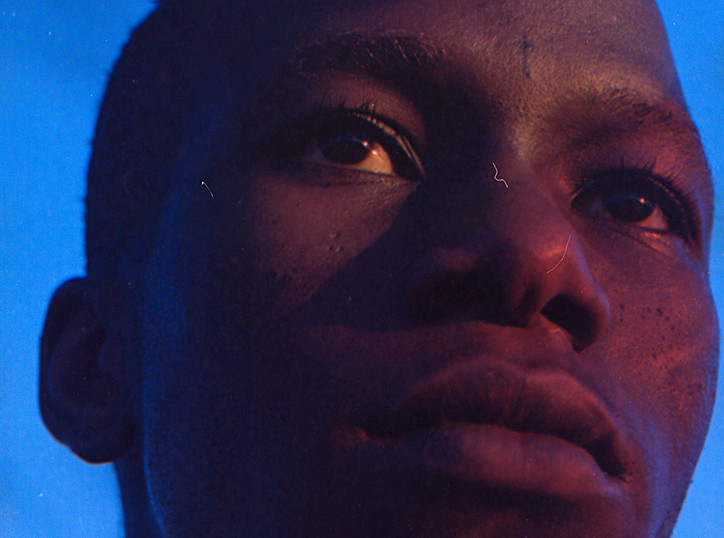
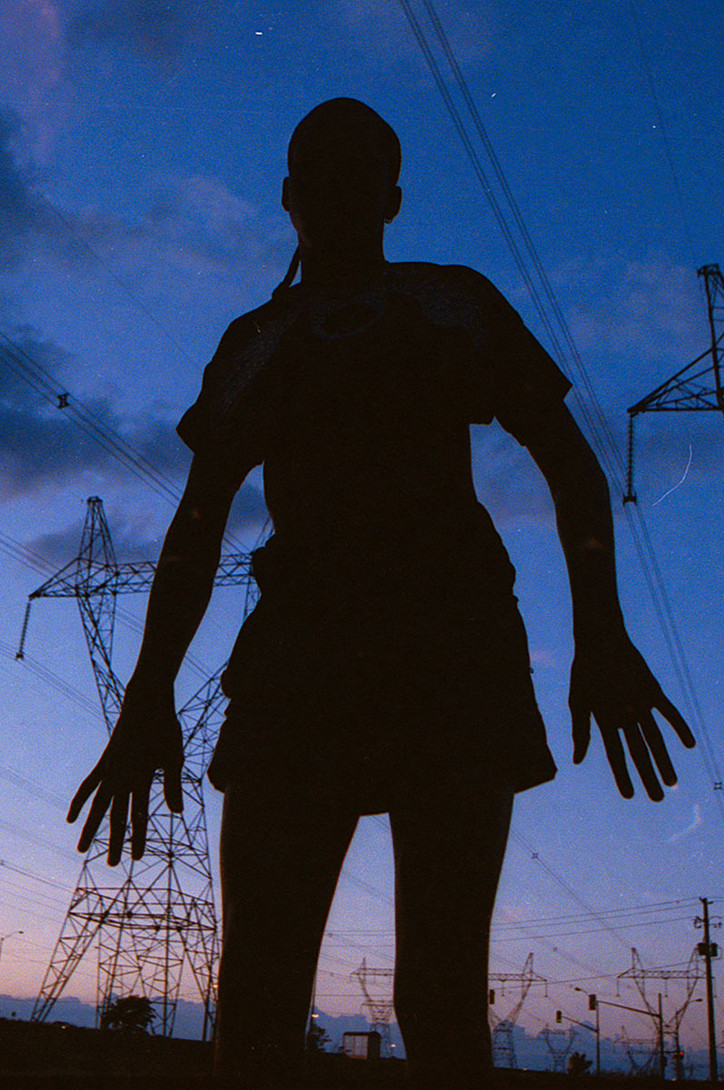
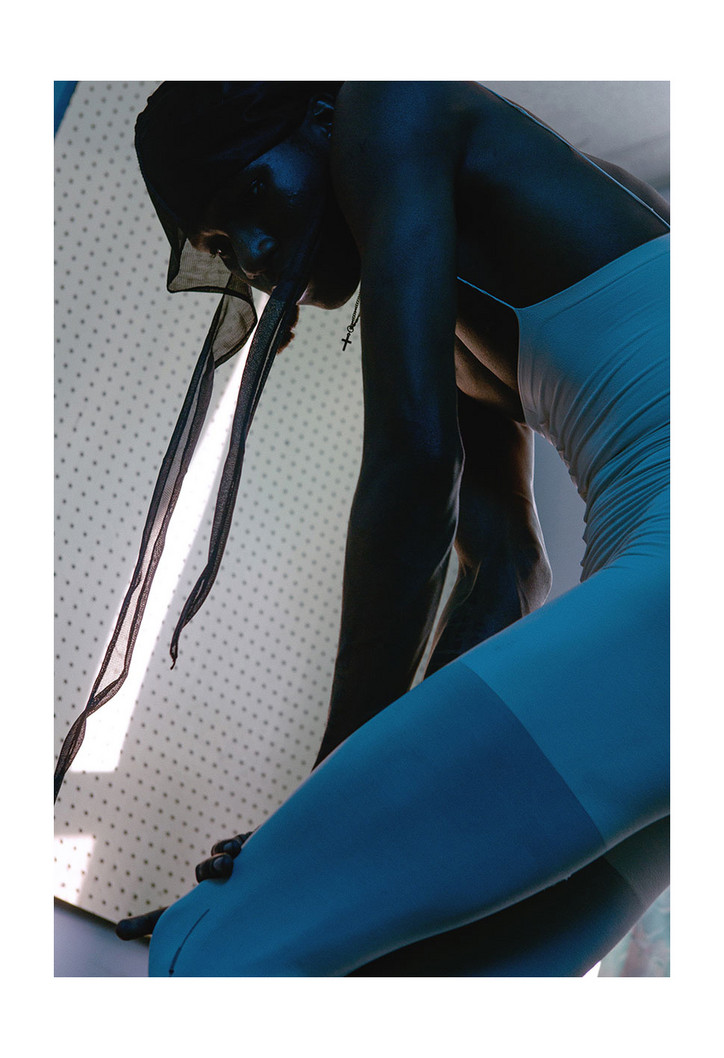
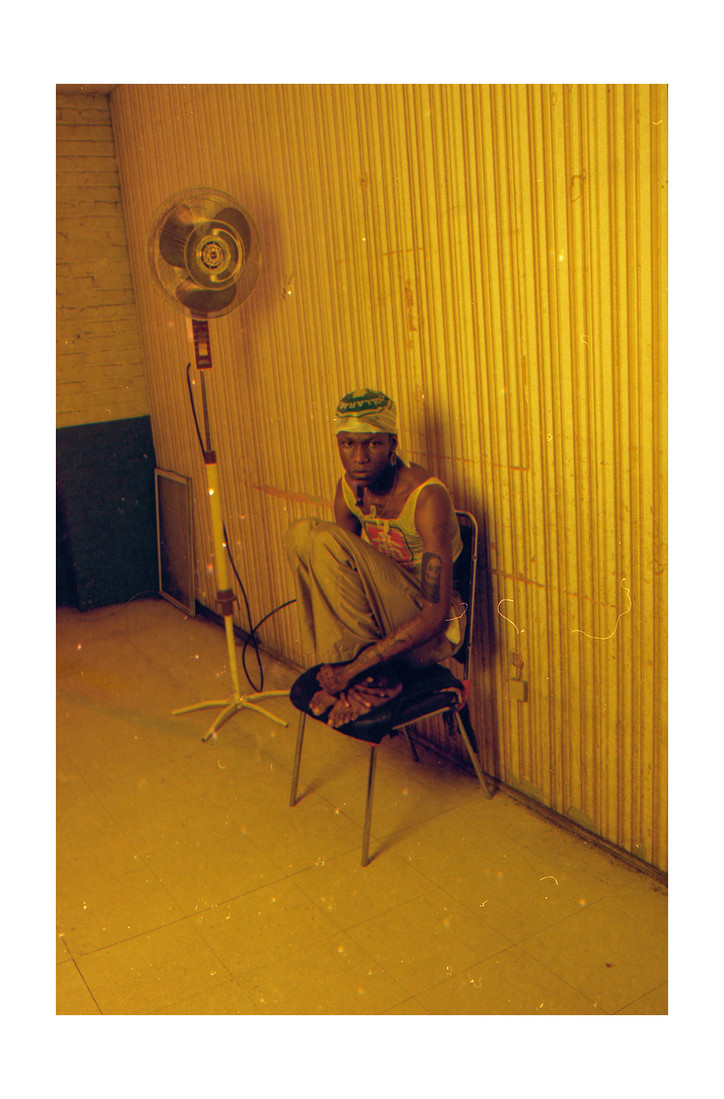
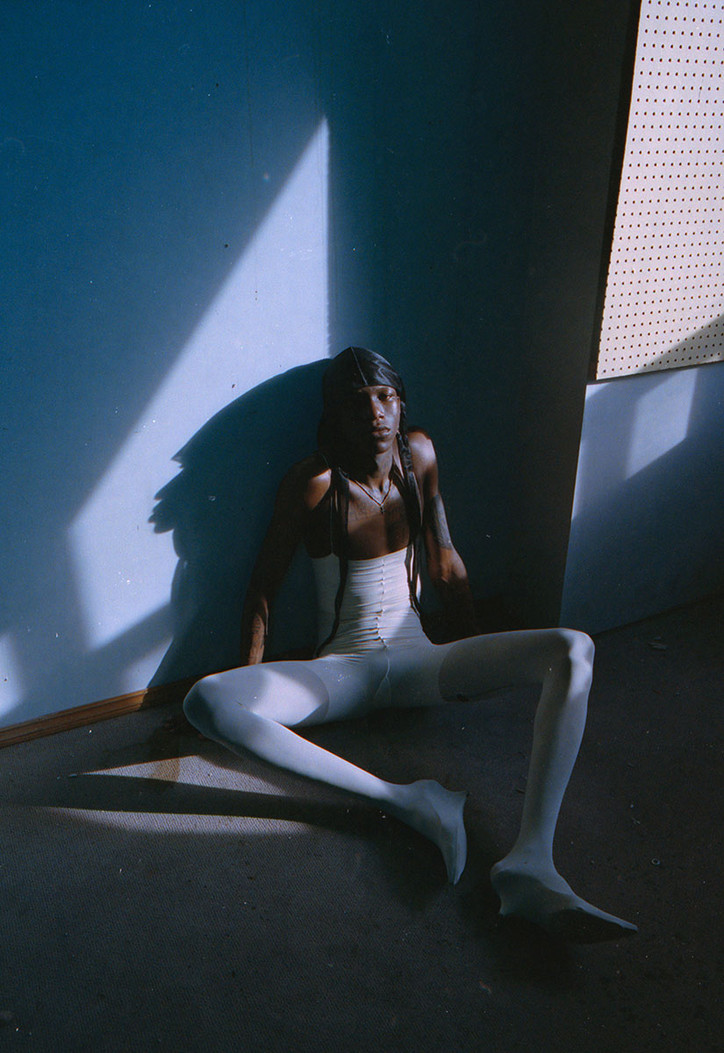
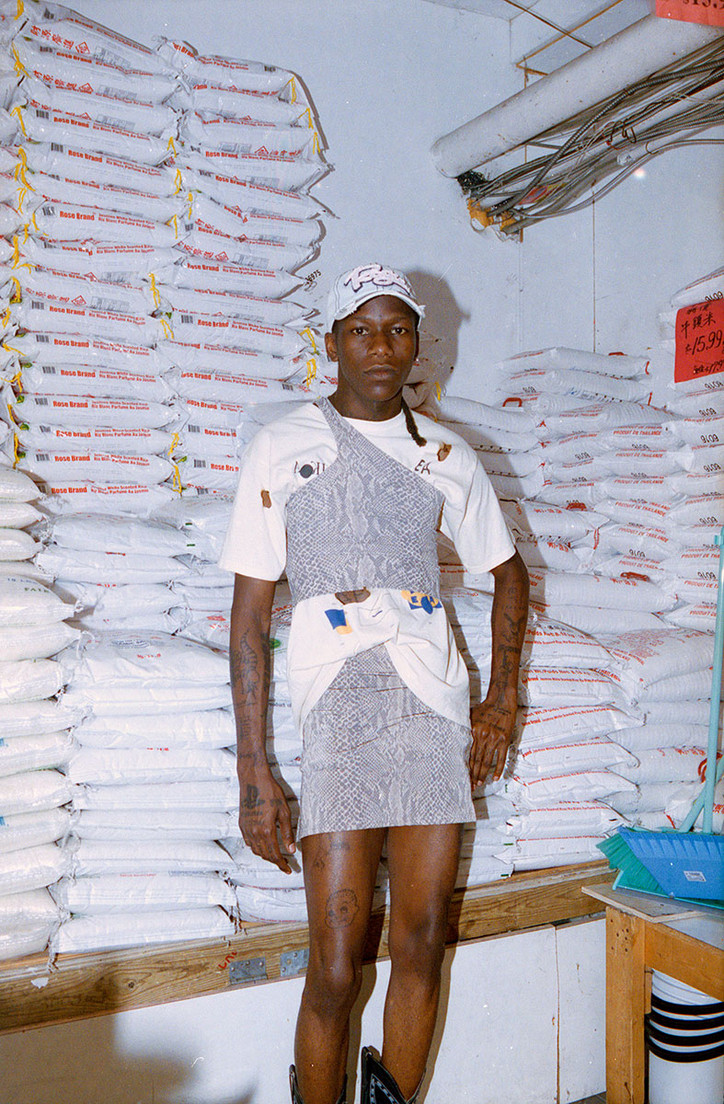

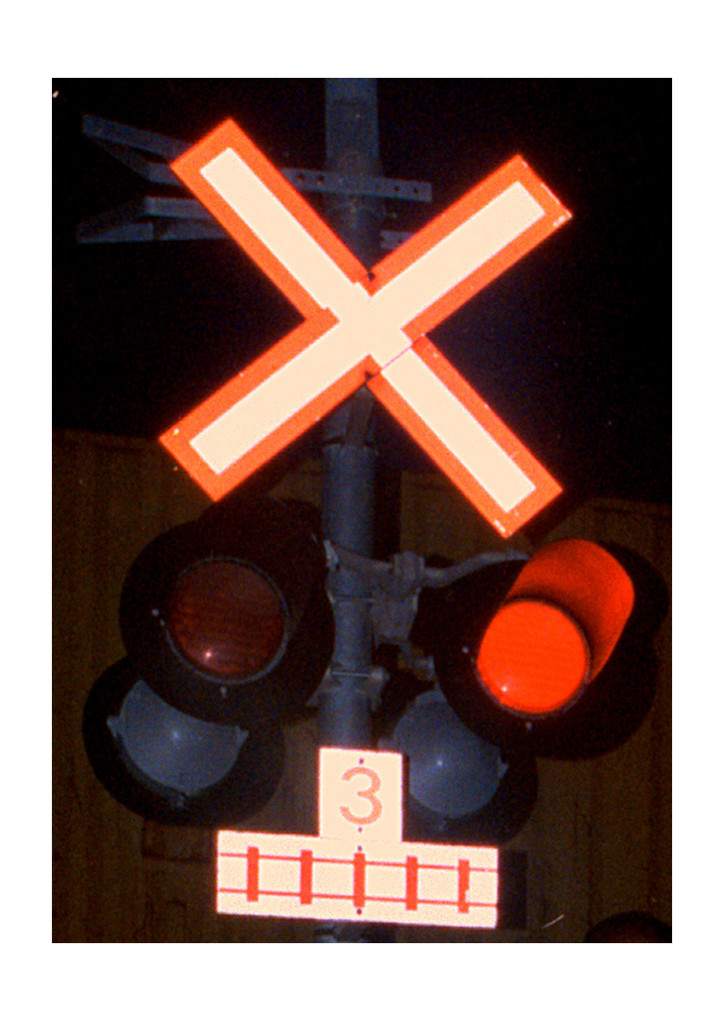
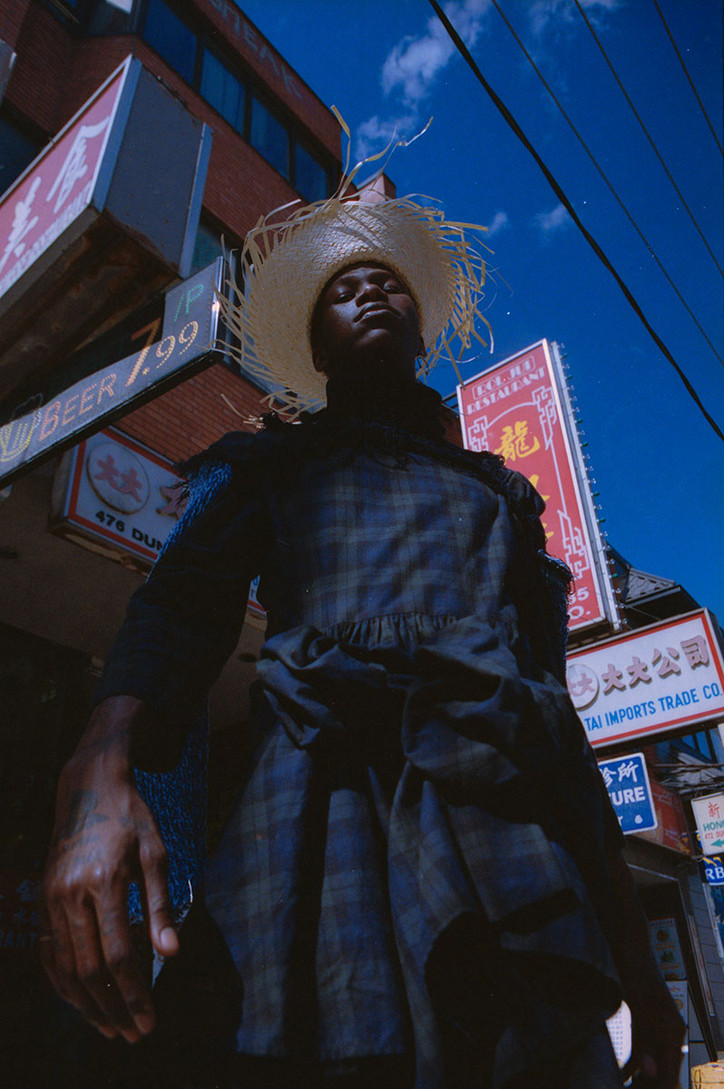
Stay informed on our latest news!









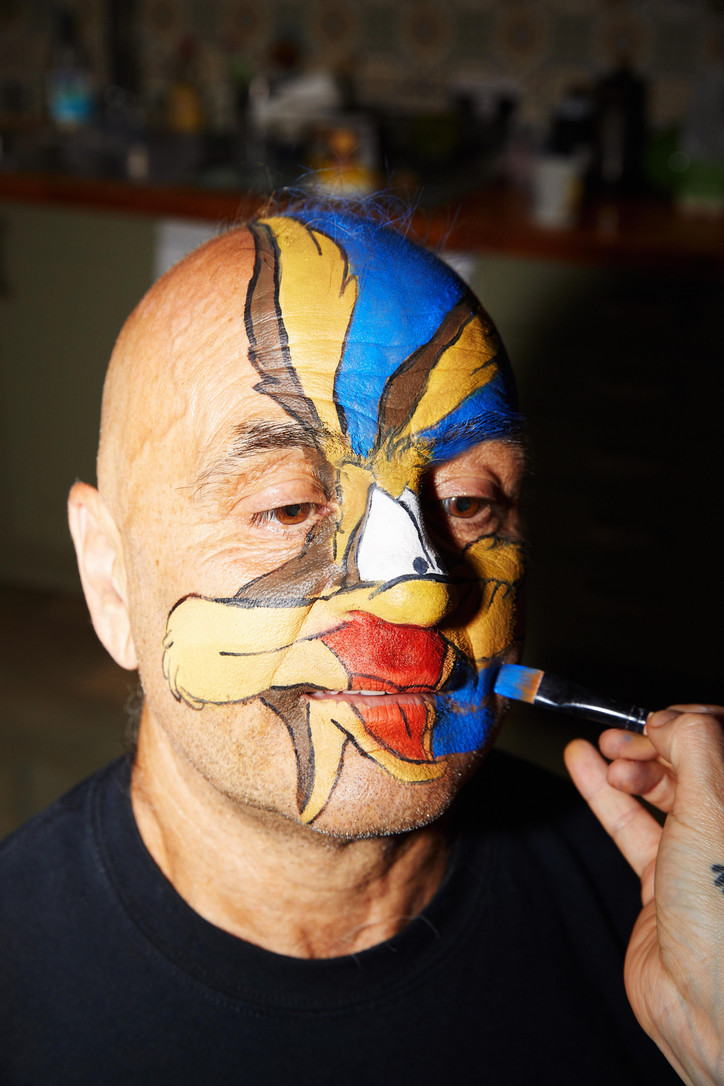
Where were you born?
London (to Scottish Parents!) and grew up in Glasgow.
Where do you feel most comfortable?
Who’s answer isn’t their bed or a nice soft sofa to sink into?
What quality do you think defines you most?
I’m energetic, fun, funny and assertive.
What do you look for in a companion?
I’m up for anything, adventurous, spontaneous and funny.
What is your biggest weakness?
I can’t remember anyone's names and I’m always disorganized.
What is your biggest strength?
My tenacity.
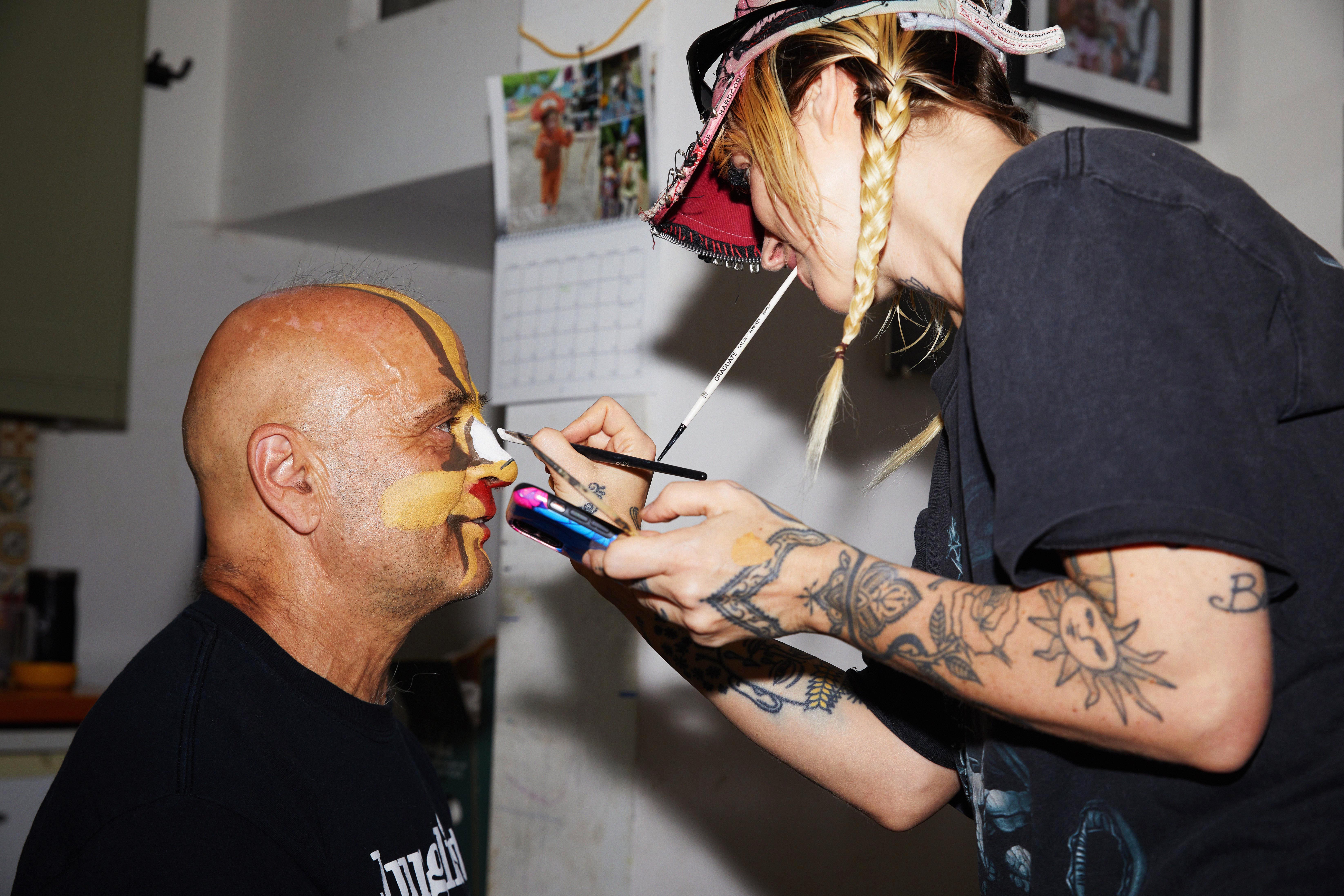
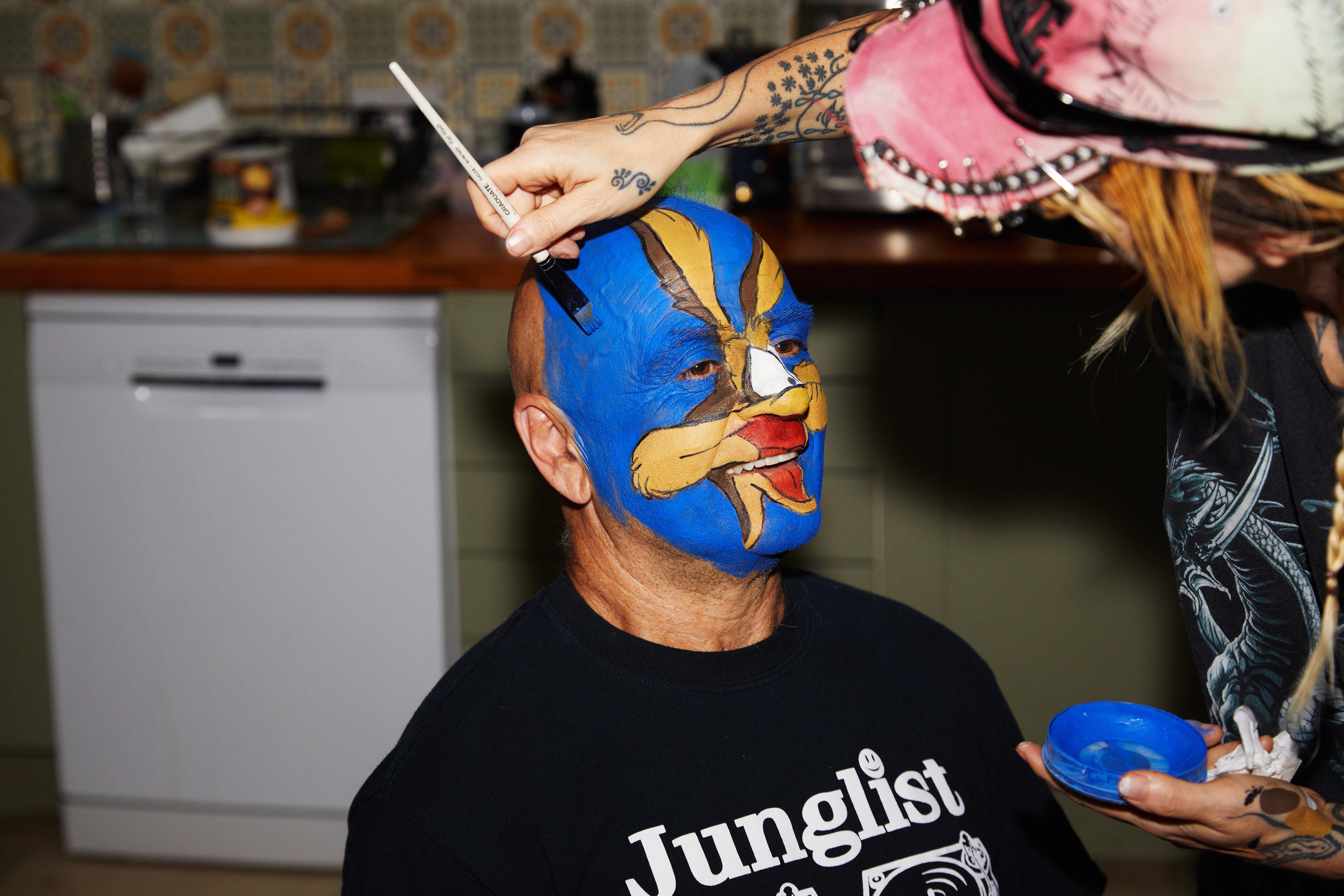
What has surprised you most in life?
That I’ve not been found out yet!
What does your perfect day look like?
Tennis in the morning, guitar practice in the afternoon, coffee and cake, jogging in the park, sunshine and then scrabble with friends in evening or off to a music gig.
What is your favorite color?
I’m a simple person: brash, and primary colors.
Who is your favorite fictional character?
Wile E Coyote.
What is your favorite food?
Growing up poor in Glasgow meant food wasn’t really a matter of choice and the food my Mother ate was grim! However I’d be happy now with a bowl of tapioca pudding.
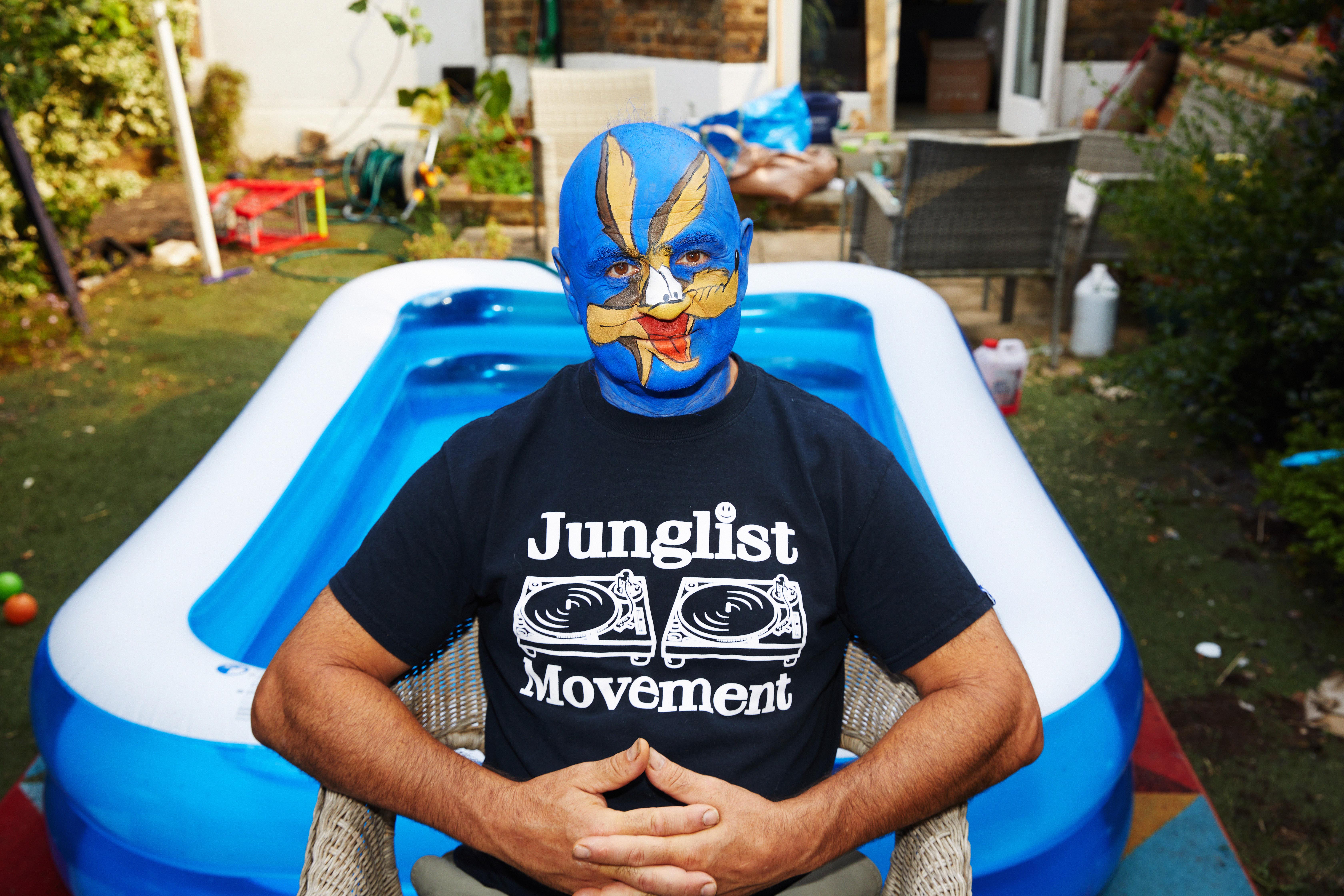
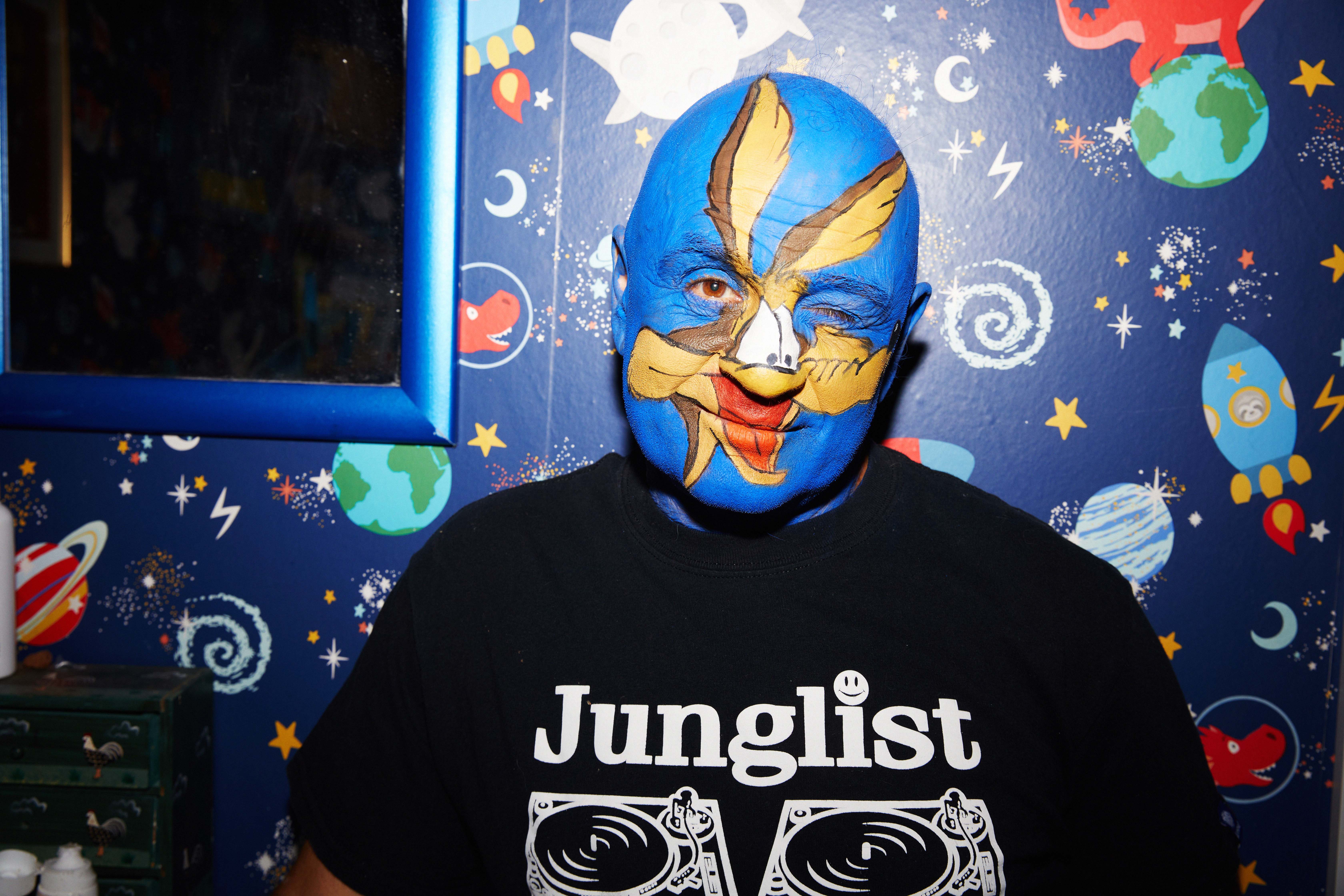
What quality do you dislike most in someone?
Being a Tory.
What is your earliest memory?
Walking down the street, aged 3 with my mother to buy a toy car. Shortly after this I was taken away from my mother to live with my aunts.
What is your biggest luxury?
My new £40,000 Campervan.
How do you show someone you love them?
A cup of tea in the morning and fixing things. My wife says my love language is fixing little things around the house to make her life easier as she can be quite clumsy.
What is your biggest achievement?
Staying out of prison, I reckon. I left school with no qualifications but went in to get a maths degree. So I believe everything comes back to when I turned my life around at 19 years old and decided to go back to school.
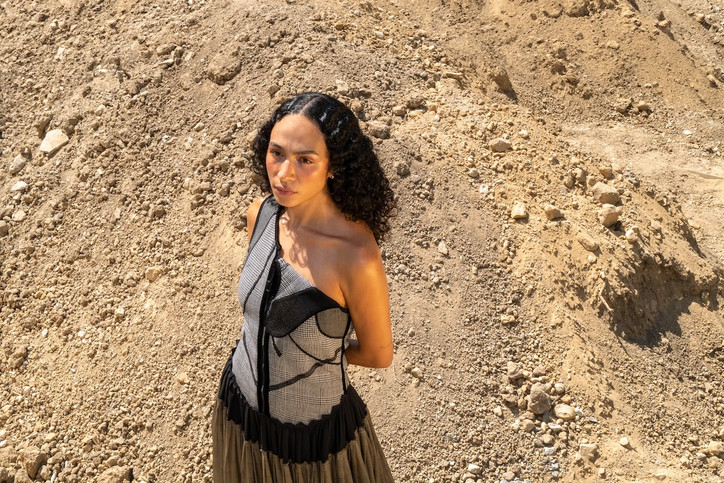
AURORA wears DRESS by JEAN PAUL GAULTIER, SHOES by RICK OWENS
After catching up with her most recent work, I talked to Perrineau about the show, which offers a modern take on the classic romance myth, Eurydice and Orpheus. From episode one, Jeff Goldblum's track-suit-wearing Zeus is tormented by an ancient prophecy predicting the end of his reign. As his world unravels, viewers are transported from Crete, to the underworld, and back.
Though Perrineau didn’t know much about ancient Greece before reading the script, she credits director Charlie Covell for making the stories accessible. She says that’s the genius of their retellings — you don’t have to know about the mythology to understand the plot, but there will be some extra nods for those who do.
Below we talk our crushes on David Thewlis, dystopian landscapes, and putting Baz Luhrmann’s Romeo and Juliet on the moodboard.
I just binge-watched Kaos.
No way!
Yeah I loved it! How does it feel to finally see audiences interacting with the show?
Amazing. It's been a long time coming since we wrapped, although we did add some scenes in 2023 before the strikes. We were in this strange period of waiting around. But, I think the show couldn't have resonated better with audiences — they seem to be enjoying it. Of course, you’re not going to have a fan in everyone, especially with something a bit more offbeat and odd, but it's doing what we hoped it would: reaching the right people. That’s been really cool.
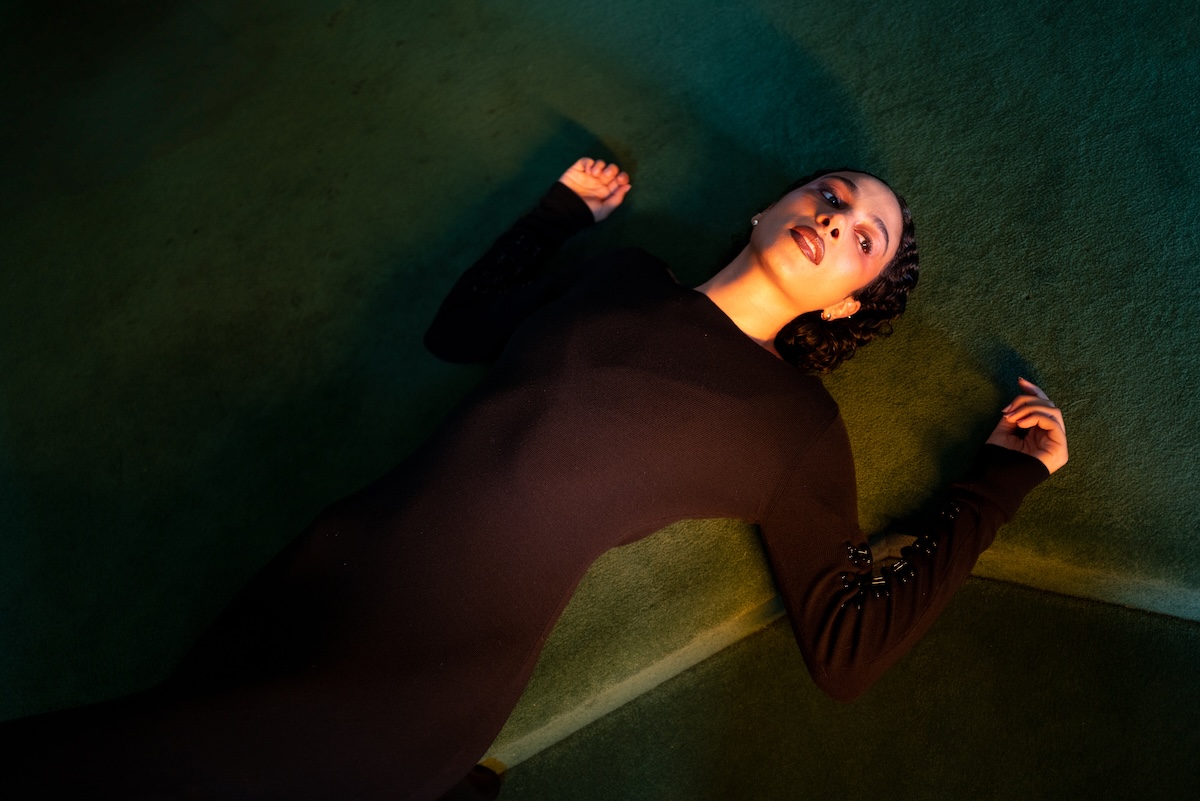
Can you give us some insight into your character?
I play Riddy, short for Eurydice. She starts off without much agency, but over time, she goes on a journey to find her voice and figure out who she really is. That leads her to something much bigger than herself.
You often star in fantasy settings that mirror reality. Do you think it’s easier for people to digest truths about our world when presented in these ways?
Definitely. It’s easier and just a little more entertaining. This format gives you enough distance from real-life that the darkness isn’t felt right away. There’s a fantasy element, and then the deeper meaning hits you later on.
Do these particular roles somehow find you?
Let me tell you, I audition for a lot of different genres, but for some reason, fantasy and horror have always worked out for me. I think a lot of it has to do with being a person of color. As someone mixed-race, it’s easier for people to see you in a fantasy setting — they don’t feel the need to explain why you’re there. There’s no backstory like, This parent did this, and that’s why she looks like this. That, and these scripts just resonate with me more.
Do you see aspects of yourself in Riddy?
I often play very sarcastic characters, which is me for sure. But I’ve also noticed a pattern where the roles I’m drawn to often feel like younger versions of myself. In Westworld, my character felt misunderstood and had to figure out how to stand up for herself. That really resonated with me.
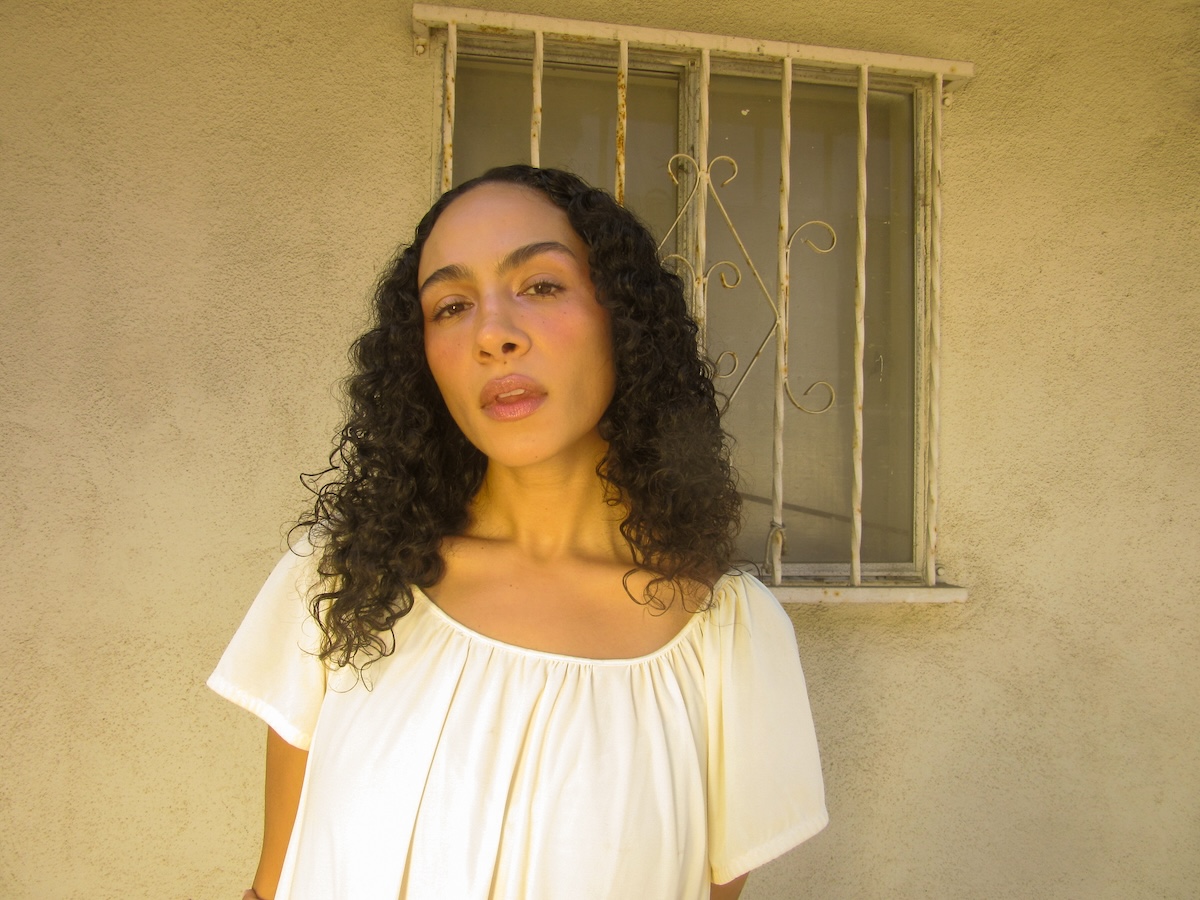
That journey to finding your agency is so important.
Exactly. When you're a young woman, it's hard to stick up for yourself and say how you feel because you don't want to offend or put yourself in an uncomfortable position. That's where you see Riddy in the show, she is so unhappy for so long, but she's let herself get there because she can't speak up for herself.
When you took on the role, did you know Riddy’s storyline? Were you into Greek mythology before reading the script?
I didn’t know much about Greek mythology, but I’d heard the story of Eurydice and Orpheus — especially with Hadestown being so popular. I also knew Zeus and the other major gods, but nothing in-depth.
Now that filming is done, are you happy to be back in LA?
I wasn’t ready to come back! I had this amazing trip through Greece, Amsterdam, and London for the premiere and press. I definitely could’ve stayed longer, but my dogs are here.
Was it surreal to visit Greece after being a part of the show?
That trip was super exciting, I felt like such a nerd. I was taking a million photos and sending them to the cast group chat, as if any of them needed to see a really fuzzy picture of the Theater of Dionysus or Zeus’ Cave.
I’m sure they appreciated it. You can tell the cast was really close just by watching.
I’ve had fun on every project, and kept a friend or two each time, but on Kaos, the cast as a whole was the closest. Everyone was lovely, and we had such a blast. We still talk all the time, even though most of them are in Europe.
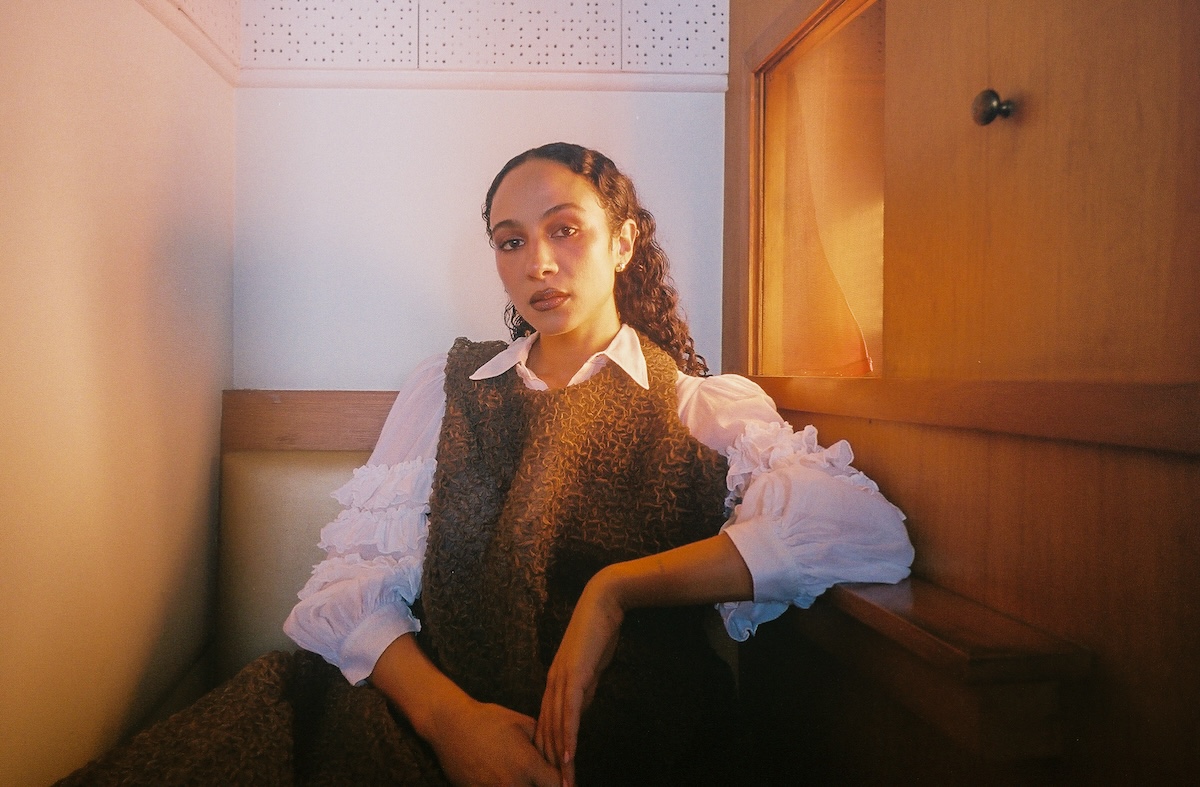
I also heard you had a little crush on your co-star, David Thewlis.
[Laughs] Since I was young and saw Harry Potter, I’ve had a huge crush on him. I made the mistake of telling a few cast members, but even if they kept it secret, it was obvious. I couldn’t speak to him, didn’t make eye contact — it was so strange! But he was an amazing sport about it, and finally came up to me and said a bunch of really kind, complimentary things. That made me feel like, Ah, I don't have to be a freak around you anymore. I did not admit to the crush, but I know he knows.
I can’t judge. Every Harry Potter fan would act the same.
Yeah, if you watch the show, there's at least one person from that cast you're going to crush on.
Multiple people for me. I also love Killian Scott. There are so many great actors and characters in the show, but if you had your choice, which figure from Greek mythology would you want to play?
It's so funny, because this is the opposite of what I keep saying I want to play, but I do have a fascination with Athena. The Goddess of War would be an insane role. But I'm pretty sure she was a “good guy,” and I really want to play a villain. I'm always playing a character who’s doing things for the greater good, which is fun, but I’d love to explore something darker.
I’ll be rooting for you, even if you’re a villain.
[Laughs] Thanks!
Is there anything specific you’d want people to take away from your character in Kaos?
While watching the show, audiences might be like, should Riddy be with Orpheus or with Caeneus? But, in the end, you see that you should be rooting for her to be on her own, and take on her own power. That's an interesting lesson: to know that you can be alone, do things by yourself, and that you're strong enough without having a partner, whether it be a man or woman, it doesn't matter.
Are there any films or songs that help you get into character?
I probably need to get a new answer, but Denzel Washington in Training Day is like, there you go, that's my bad guy role, that's what I want to do as an actor. Also, Kaos takes a lot of inspiration from Baz Luhrmann’s Romeo and Juliet, which my dad stars in. Anything he's done, I'm in awe of. A big learning lesson has been watching how he's handled the business, and his roles. And then music wise, I'm not a radio person, so I listen to the same thing over and over again. Right now I want to say it's Frank Ocean's Blonde and then Stranger in the Alps by Phoebe Bridgers. Those are my very depressing go-tos when I'm working.
Those are classics.
You can’t go wrong, so it's fine. You can listen to them till the end of time.
What got you into acting in the first place?
My parents were actors, so I just thought that's what you did, and only later found out you didn't. I acted for a while when I was young, but quit and was an equestrian for 14 years. I thought that's what I would do with my life. Then, I started modeling, and got away from horseback riding, because I couldn't really do both. I didn’t feel creative enough as a model, but I liked certain elements of it, and the idea of putting on clothes to become a different character. So I tried to get back into acting, and it was slow, but I did a lot of training and kept at it.
I didn’t know you were an equestrian; has that influenced your acting career in any way?
It’s similar to acting in that it’s competitive, but horseback riding is singular, it's just you. The intertwining element involves always wanting yourself to perform better. In both careers, it’s more so about competing with yourself than others. Also, horseback riding was all consuming because you have to train all the time, and I feel the same about acting.
What do you like to do when taking a break from work?
I’m trying to get back into horseback riding because it’s great for my mental health. I also love road-tripping. During the strike, I traveled around America in a van, seeing new landscapes and cultures. It’s become my biggest hobby.
Do you believe in “cosmic significance”?
Oh god, this could be a whole other interview. I really believe in the karma of the universe and that things are happening for a reason. If you're seeing something again and again, I don't think that's a coincidence; everything and everyone is connected in a certain way. It's funny to think that it's just so black and white.
And has anything happened to you recently that's felt like fate?
From a work perspective, I often play characters that happen that have a parental problem. They're either disconnected from their parents, or holding some kind of resentment towards them. I have no idea why that is, because my parents and I have a great relationship, but it's a role that I love to play. It's such an interesting concept, and it seems to keep coming back to me.
Maybe it's a psychological thing, like we want to understand what we don't see in our own lives.
Yeah, that's probably part of it.
Do you have any goals for the coming year?
I would love to do a movie, but I want to get into something fully character driven. A lot of times I play characters that have a physical element to them, where they're fighting or something, so I'd like to do something without a lot of frill, and see how that goes. Personally, I would like to be a little kinder to myself. I think I struggle with that.
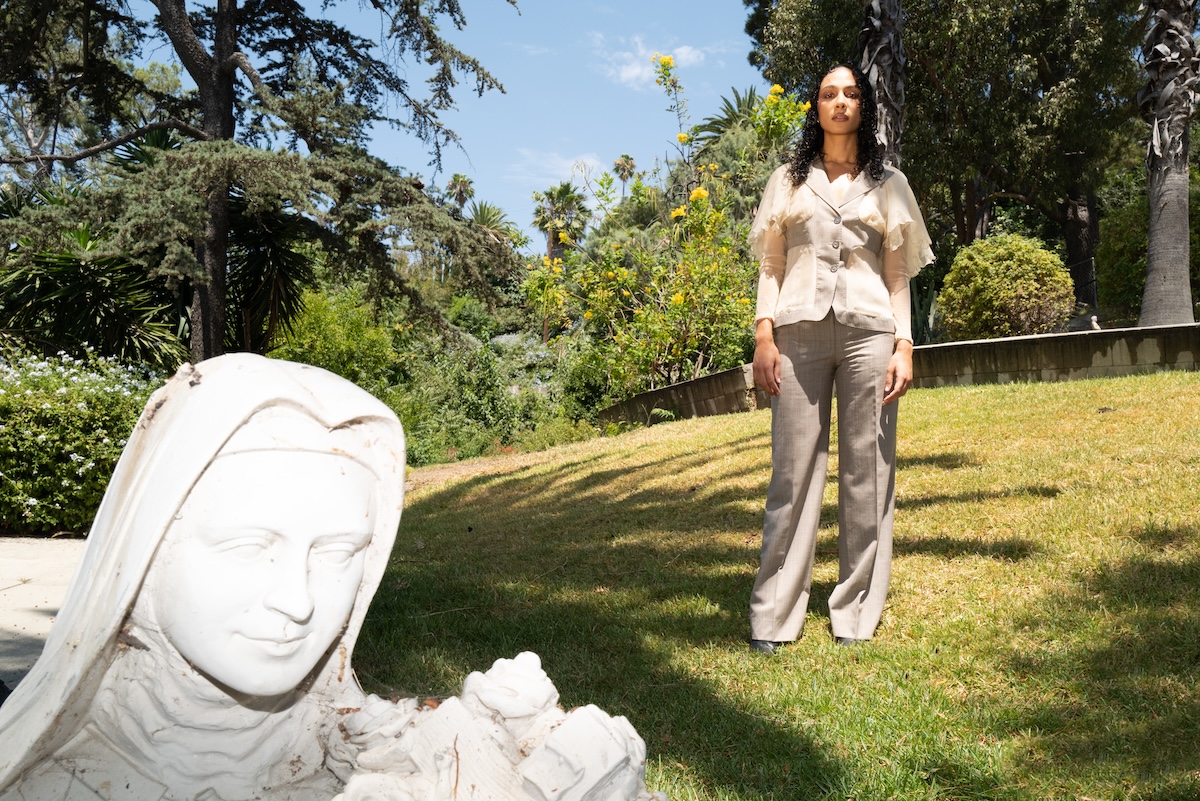

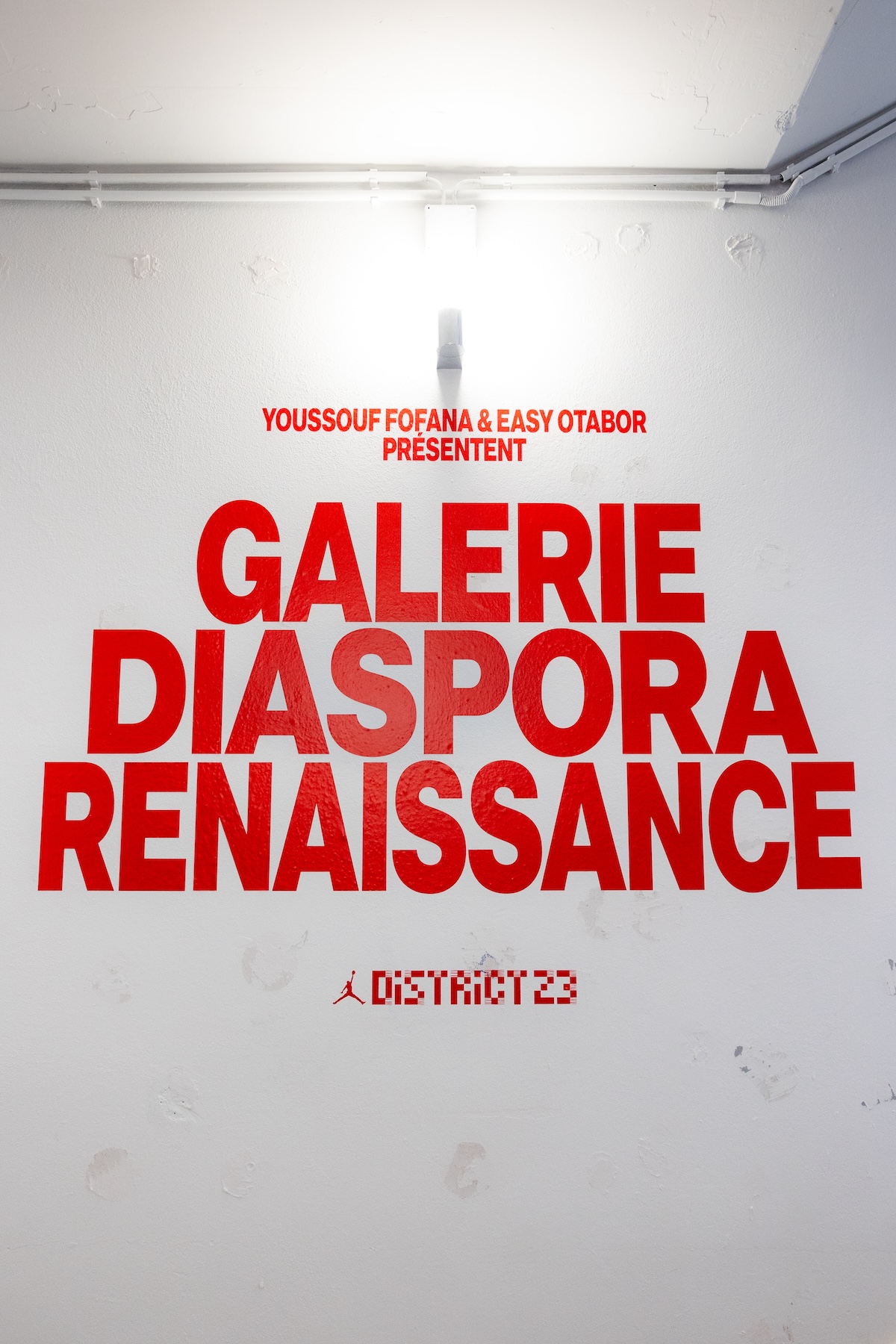
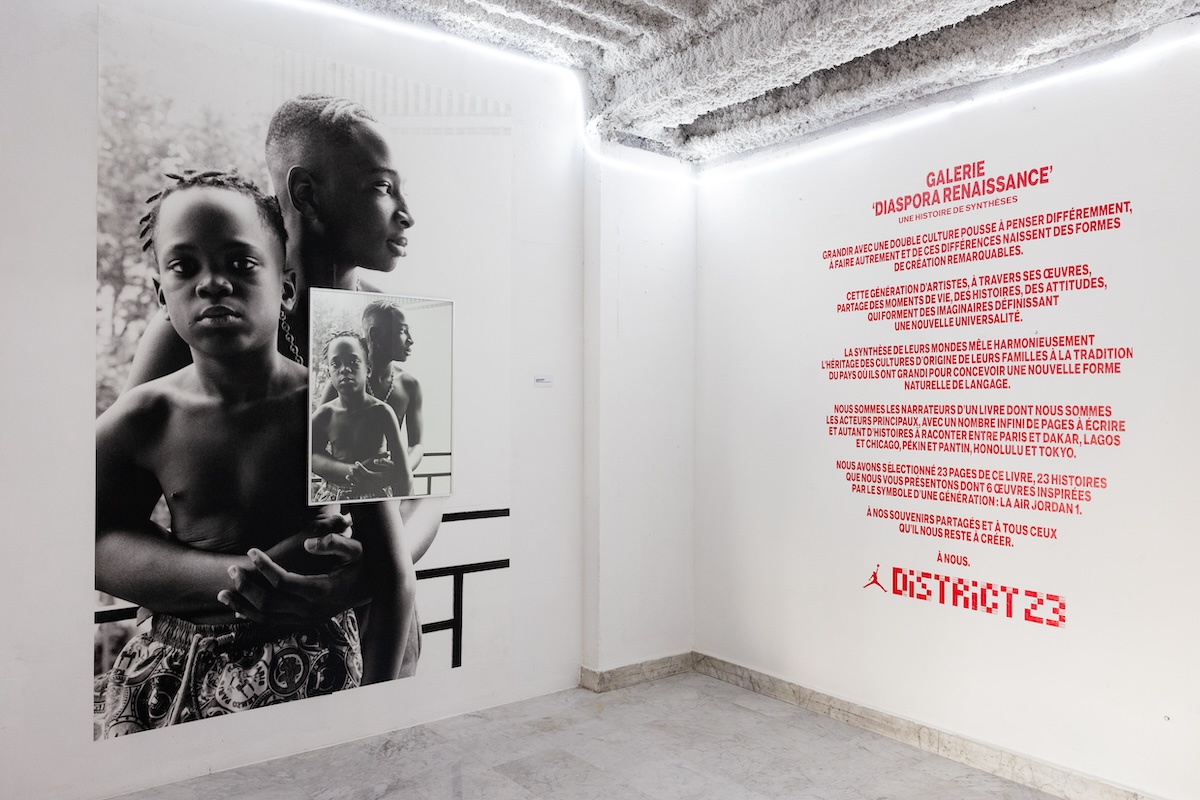
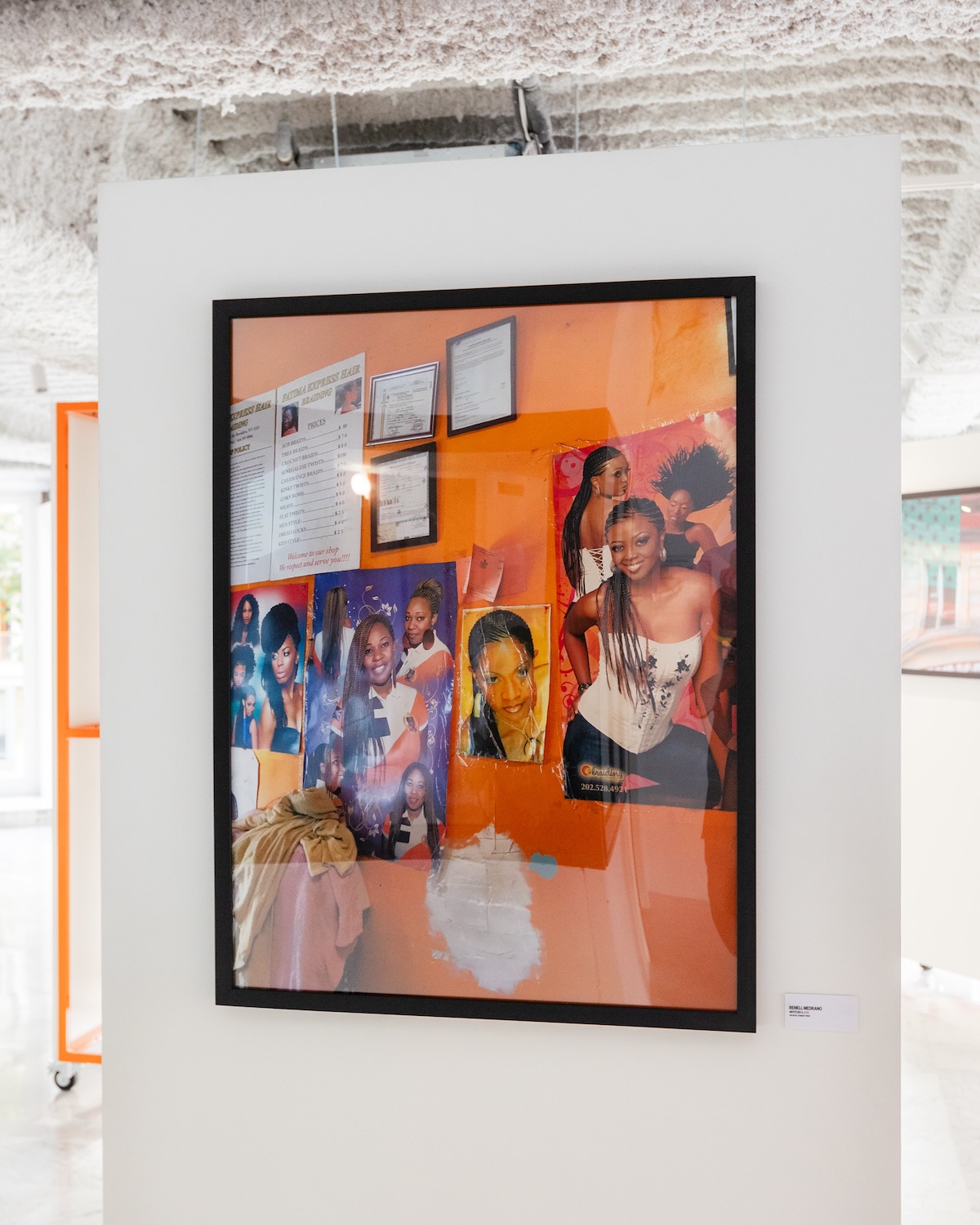
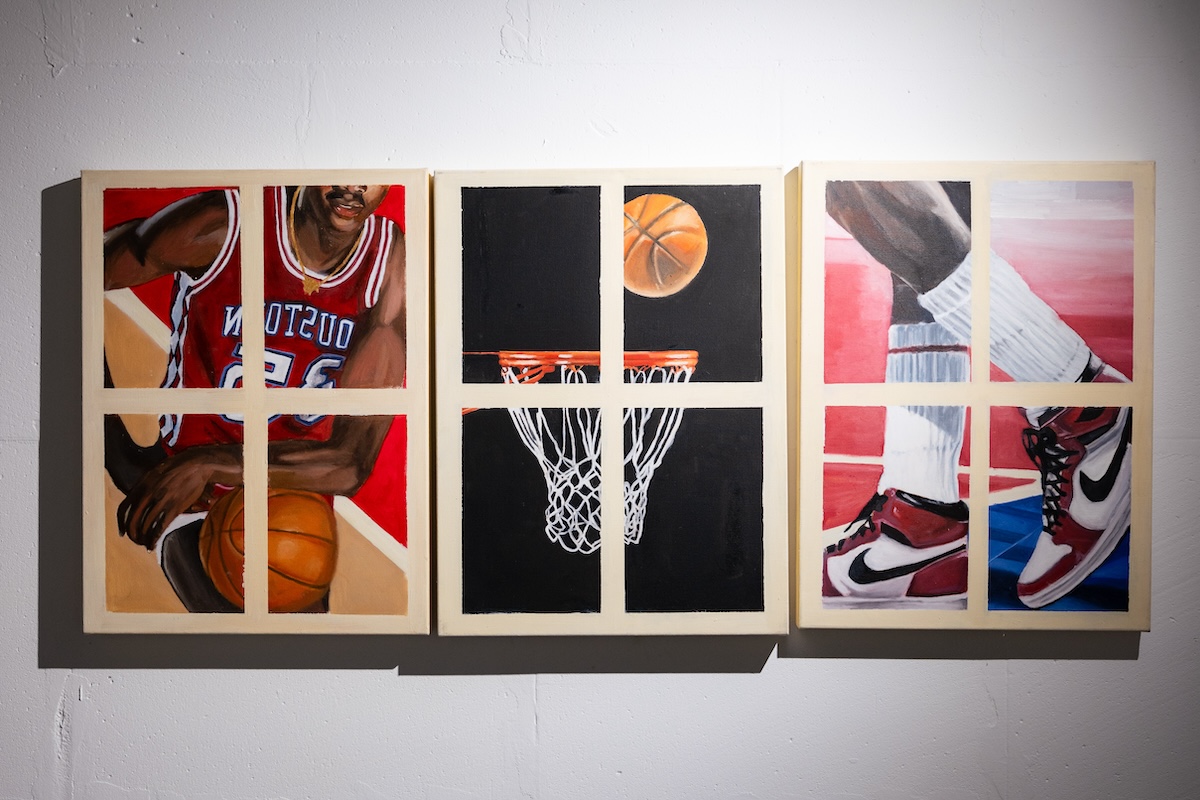
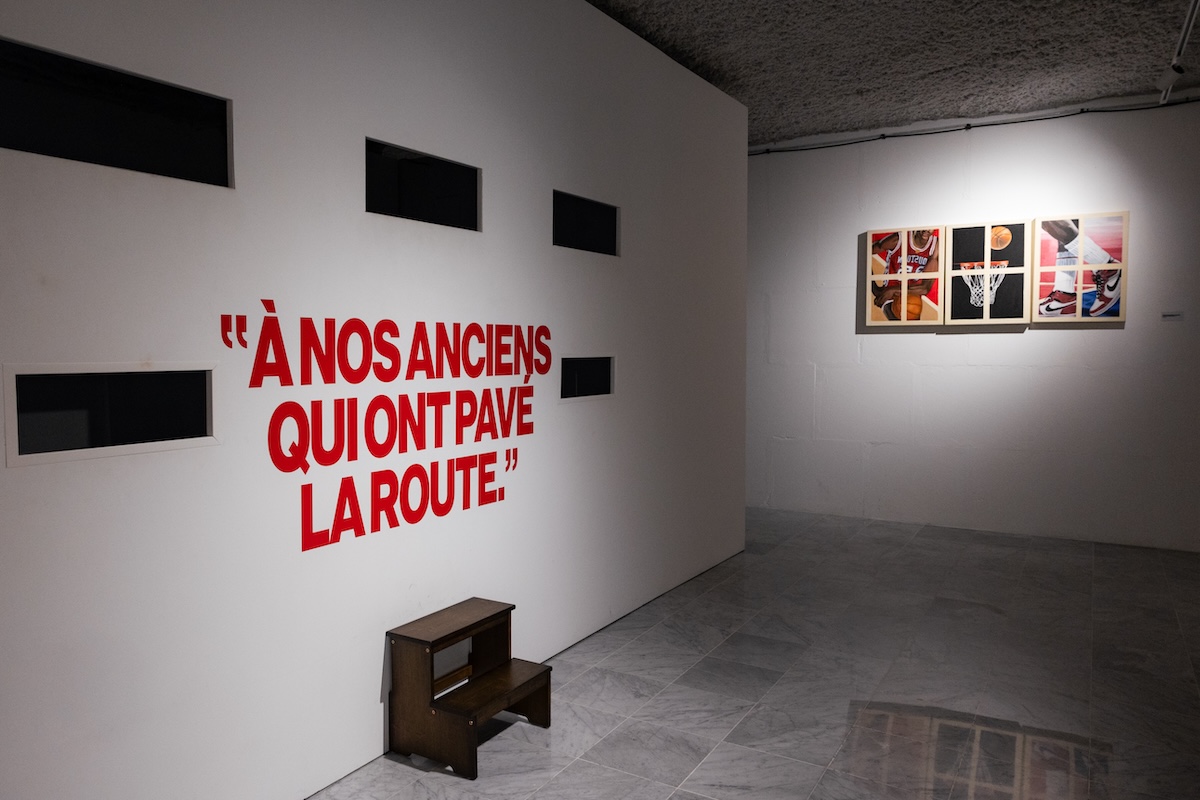
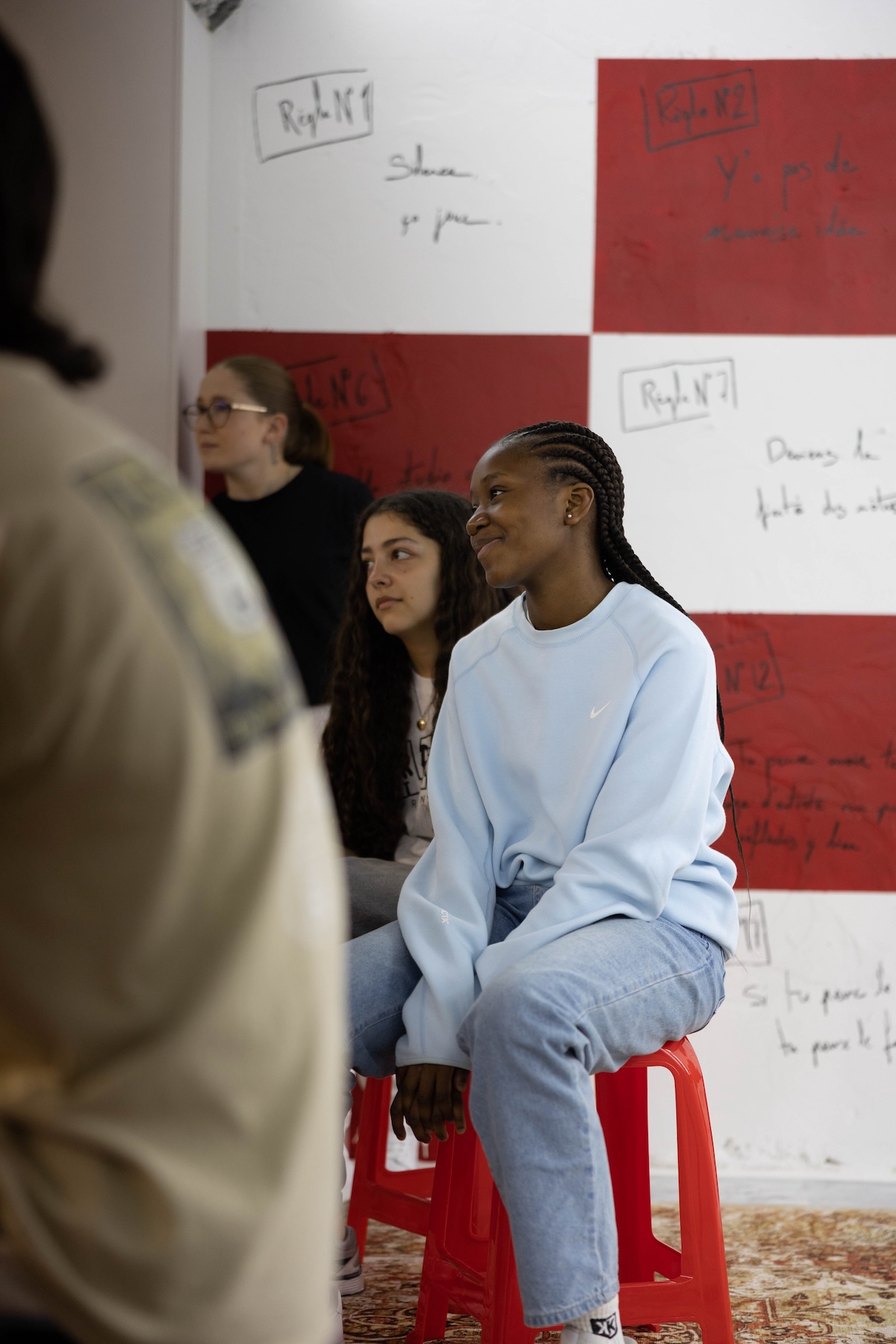
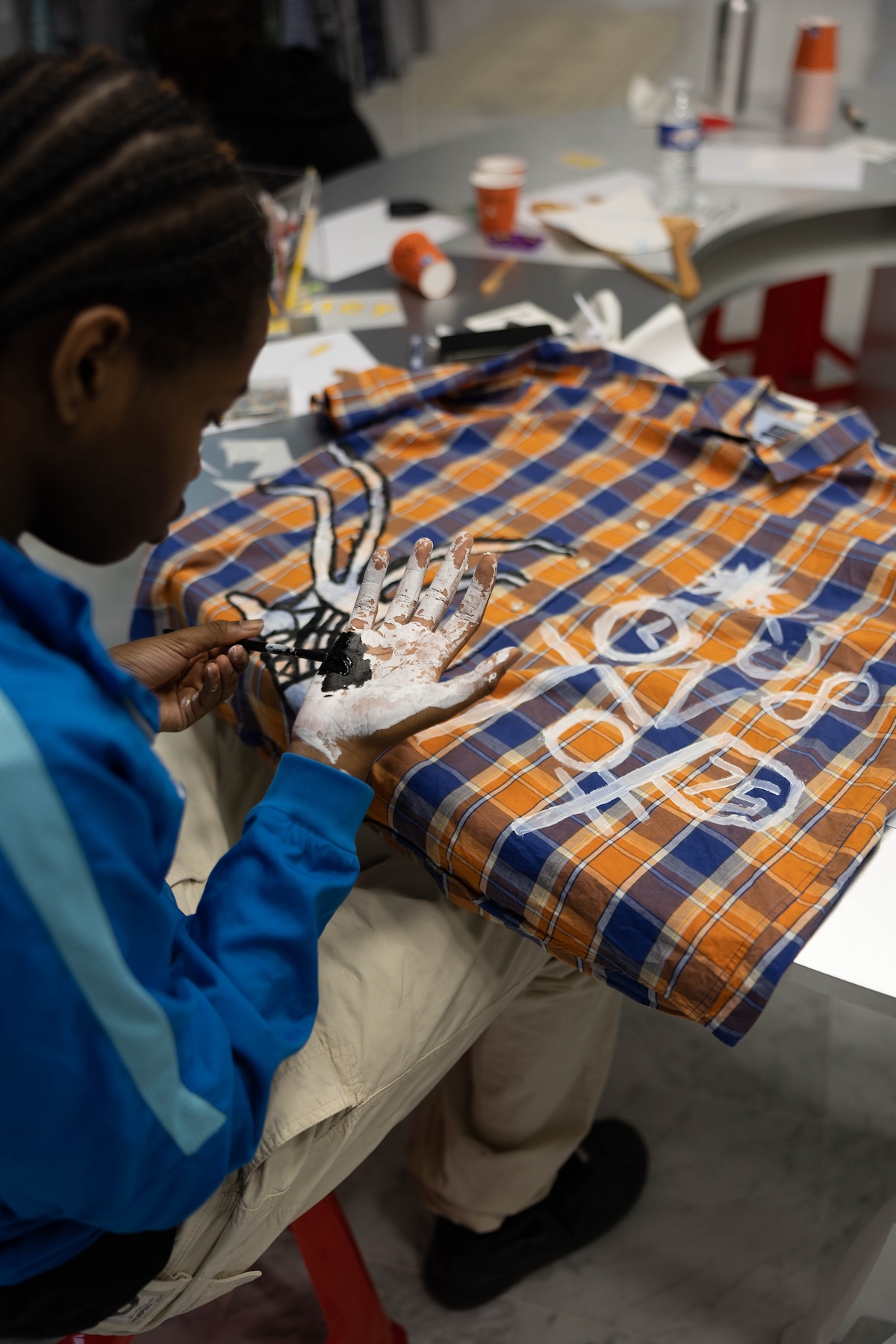
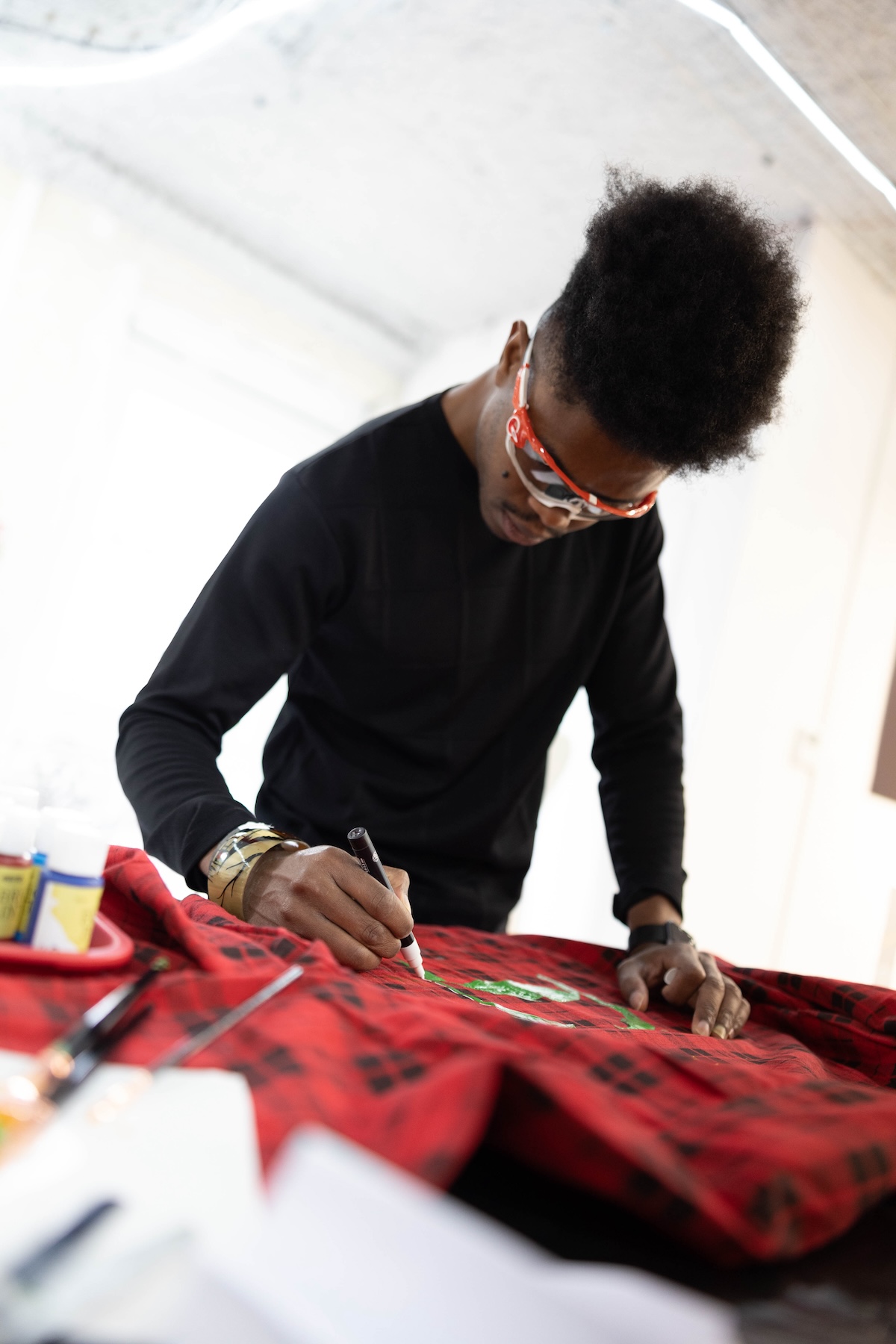
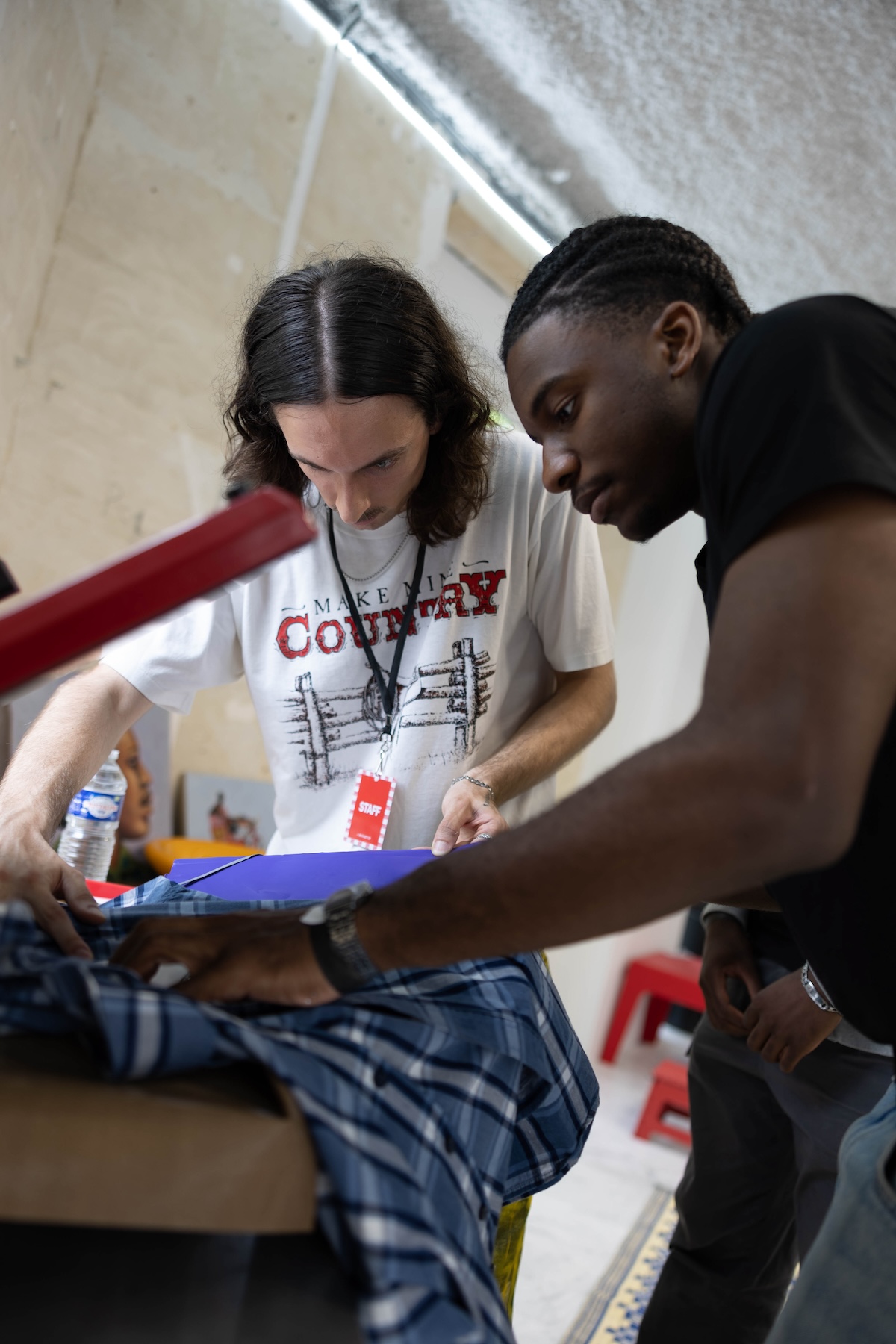
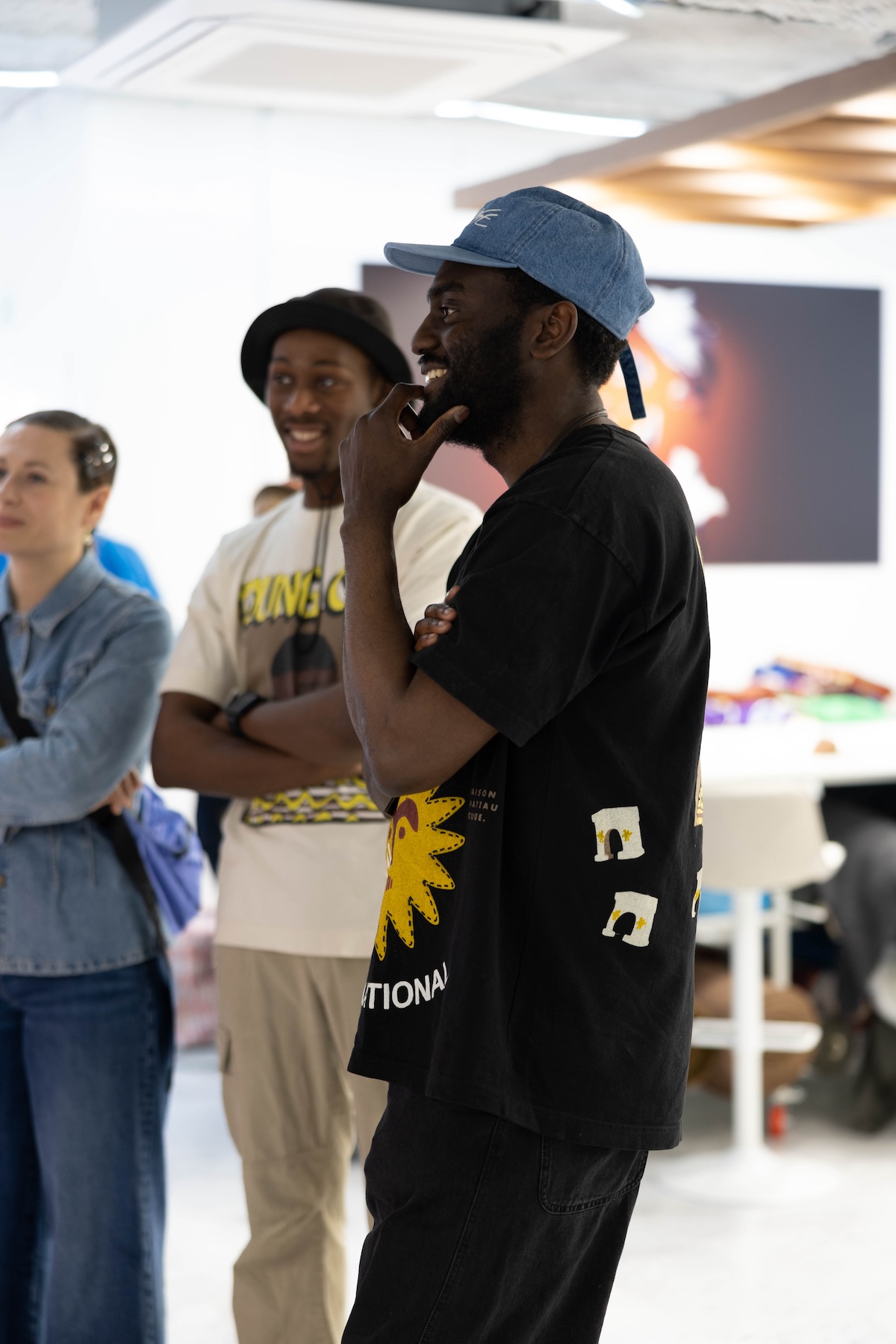
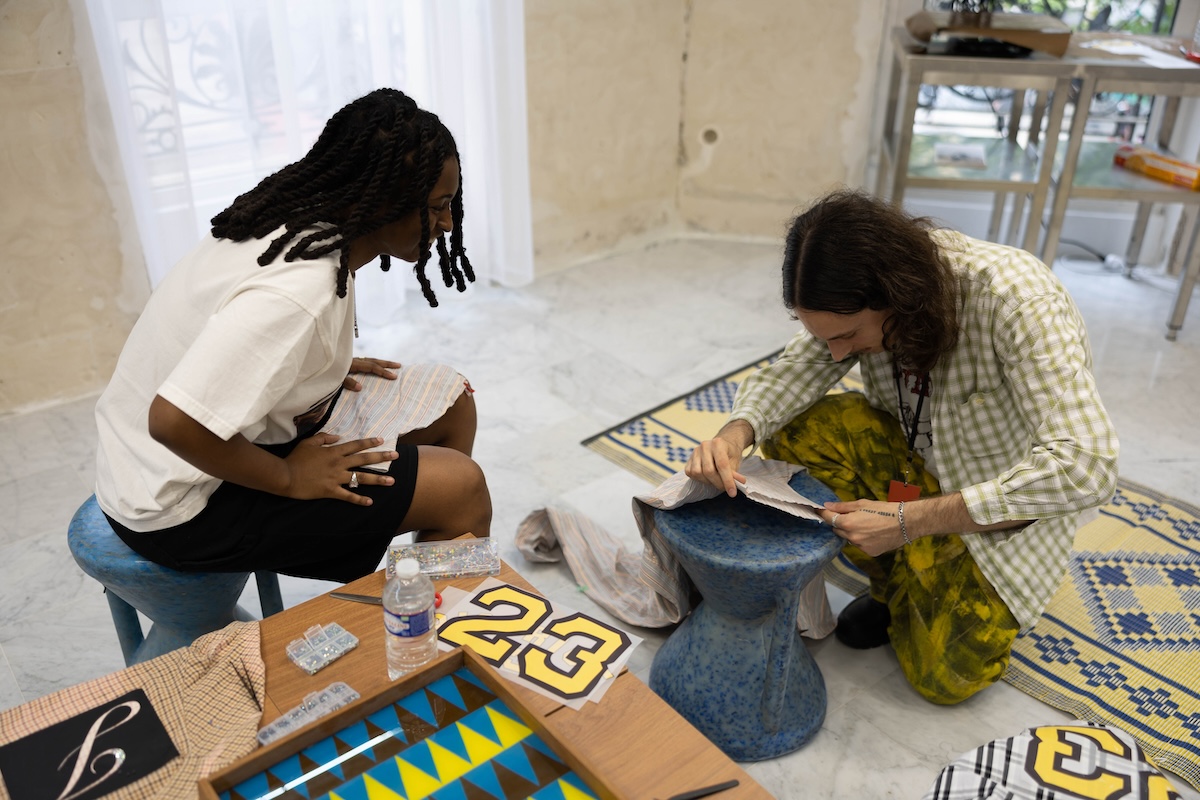
Medrano’s photograph is great example — a wall lined with posters of braided hairstyles, vibrant yet worn with time. The orange walls, framed certificates, and service menus above the posters evoked a sense of familiarity, a scene that could be found in the 18th arrondissement, Bushwick, or beyond. For Fofana, the project was also a way to honor the neighborhood’s history of immigration. “This area has seen migration from all over the world, and now the new generation can tell their story,” he said, emphasizing how the exhibition ultimately paid homage to the community’s evolving identity.
Throughout the summer, District 23 also hosted a creative summer school led by Fofana, continuing his work with United Youth International to support young creatives from underrepresented backgrounds. Four emerging designers — Ousmane Badirou, Essawe Lalaire, Allan Arma, and Phillipe Kaninda — were among the participants, representing the next generation of talent shaped by Paris, a city that, for all its complexities, remains a fashion capital.
In the interviews that follow, we explore their journeys, inspirations, and how they’re redefining creativity in a city that has long been a creative beacon.
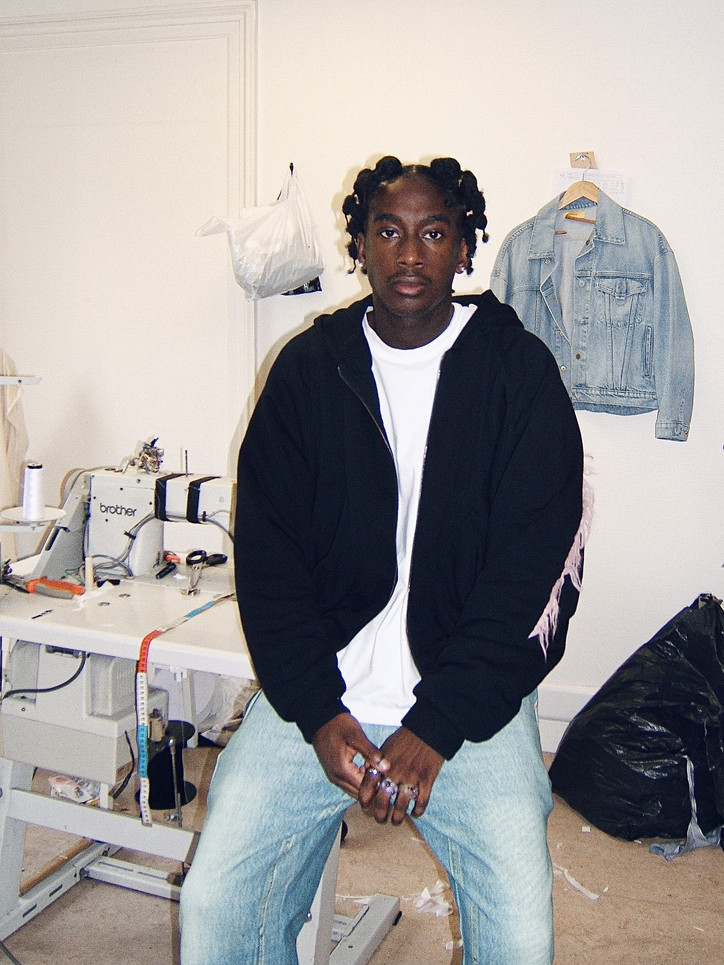
Photography courtesy of Samuelle Nono
What began as a side project fueled by a mutual love for fashion has grown into Abela023, a Paris-based brand founded by Ousmane Badirou and his brother. Reflecting their journey from young adulthood to maturity, Abela023 offers a fresh take on menswear classics. Driven by the freedom to create and the thrill of seeing their designs become part of someone’s identity, the brothers continue to work seamlessly together.
Ousmane’s inspirations start with his parents, especially his mother, whose love for supplies, clothes, and her "madness for buying" left a lasting impression. His father’s determination and insistence on always being presentable also shaped his approach to fashion. “You have to be ready to meet anyone at any time,” his father would say — a principle Ousmane has carried into his work.
His Yoruba roots from Benin and Nigeria subtly infuse his designs, as does the rich cultural mix of the Parisian suburbs where he grew up. “I’m inspired by fascinating human beings and how misperceptions can spark creativity,” he shares, recalling how something as simple as a mismatched sweater can lead to the discover of a new silhouette.
Where might we find you on a Sunday afternoon?
Usually, my Sunday afternoons are reserved for watching football games on my sofa, and in the evening, I play 5-a-side with my friends.
Do you have any rituals?
Every design I make is written down in words before I start making sketches or tech packs.
What is your favorite place in Paris to be alone?
My favorite place to be alone is my kitchen, where I develop a lot of ideas and can cook because I'm greedy. In Paris, I'd say Season or Café Crème — these two places are opposite each other in the 3rd arrondissement. I work a lot there, and I can relax and look at my surroundings, as people in this neighborhood are well-dressed.
What was the last dream you had?
Honestly, I don't remember any of my dreams.
If you could interact with one person from the past, who would it be?
I think I'd try to meet Martin Margiela when he was at the head of his eponymous brand. This man is at the origin of so many brand concepts, but when you look at his work, you get the impression that everything has already been done. What we think of as innovative today, he was already asking those questions back then. And he managed to do all this without being in the spotlight, which is very hard to do these days.
Who have you been most proud to see wear a piece from your brand?
I would say my parents because they are our first haters — they don't always understand what we do and therefore don't easily validate our pieces. So, when they want one of our pieces, it's a sure thing. In terms of artist I would say Aminé. He's one of the artists who likes our pieces and really wears them, as well as MadeinTYO. These two guys were really genuine when we had a conversation with them.
What is one of your favorite patterns at the moment?
I’d say tiled patterns, like the ones we used in our last design — a pair of pajama pants. Patterns with small tiles and a good color are always a good idea for pants, jackets, or shirts. I'd still like to be able to develop my own motif in the future — it's an idea that never leaves my mind.
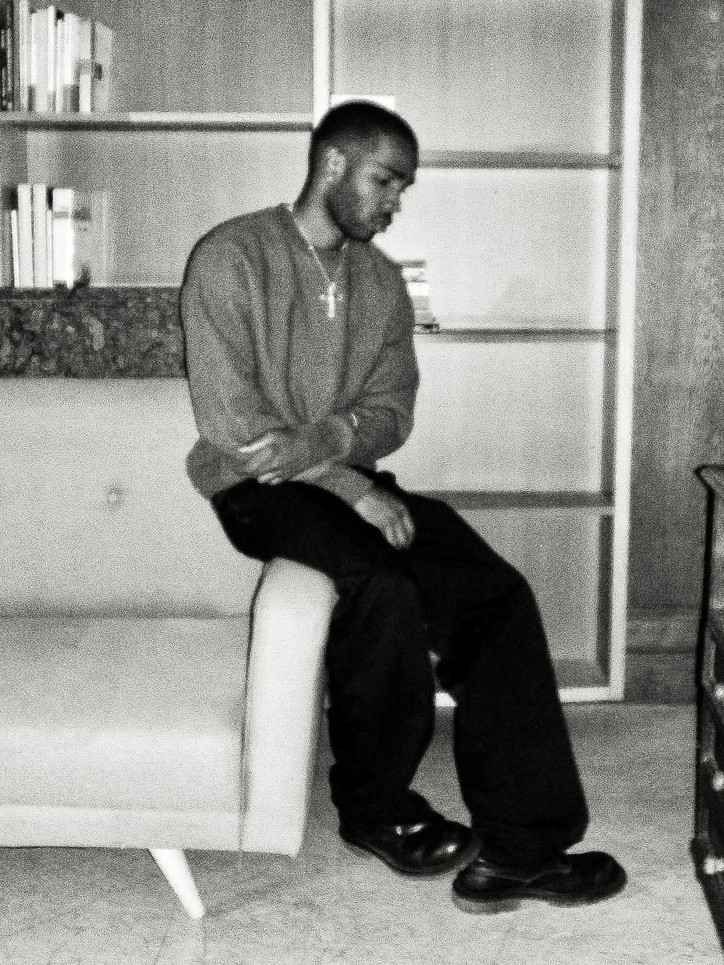
Photography courtesy of Samuelle Nono
A talented creative strategist and image maker, Allan Arma launched Maryse Seigu just over a year ago with business partner Yann Summers. Originally from Guadeloupe, Seigu focuses on uplifting narratives within locations where the Afro-descendant diaspora holds significant influence yet remains underrepresented in visual media. For Arma, the brand is more than a business — it’s a tribute and creative platform, allowing him to honor his heritage and freely experiment without limitations. With exciting new projects on the horizon, Arma shares his inspirations, daily rituals, and thoughts on the recent Olympic Games in Paris, as well as the unique blend of cultures that shapes his work.
How have you been spending your days this summer?
At first, I wanted to leave Paris and go to my hometown of Guadeloupe, but I had some projects to finish and got caught up in the Olympics. Staying turned out to be a good decision; I’ve been attending the games and catching up with friends that stayed in the city.
What’s inspiring you right now?
I'm inspired by the perception of ‘failure’ and how, with the right mindset, it can be leveraged to your own advantage.
Where might we find you on a Sunday afternoon?
I have a coffee shop near my place where I like to chill, organize my week, and take calls.
Do you have any rituals?
My only constant ritual is prayer.
If you could interact with one person from the past, who would it be?
I’d love to talk with Édouard Glissant because his theories from two decades ago remain extremely relevant today and would really help us as a society. I use a lot of his archive with Hans Ulrich Obrist; it is well documented.
Who have you been most proud to see wear a piece from your brand?
Definitely my close friends. They truly represent the brand essence in a tangible way.
What is one of your favorite patterns at the moment?
I am not necessarily focused on ready-made patterns but one that I would like to find a way to incorporate into my work would be madras.
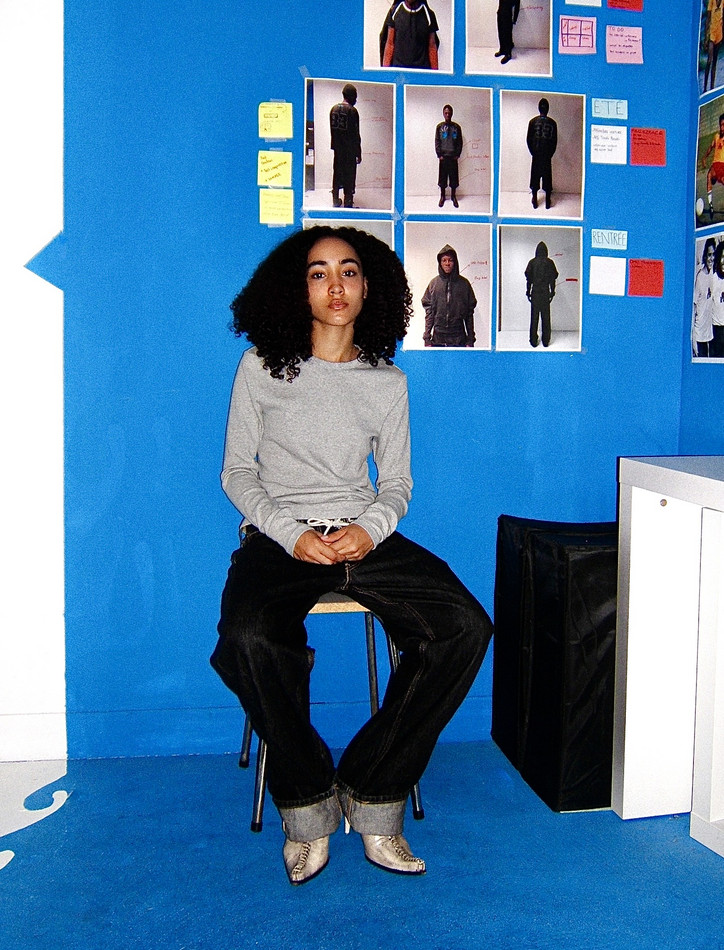
Photography courtesy of Samuelle Nono
The brainchild of Essawe Lalaire, Omo Ita embodies her own journey of self-discovery and expression. The brand’s name, which means “wanderer” in Yoruba, reflects Lalaire’s own path — one that began with sewing clothes for a teddy bear as a child and evolved into a deep passion for garment construction and design. For the past year, Lalaire and her business partner have been working independently to bring this lifelong dream to life.
“My favorite part of the process is when we take our initial ideas and references and craft a storytelling direction. It’s an enriching phase where ideas meet and challenge each other," Lalaire tells us of their creative process, which much like the wanderer that inspired the brand’s name, is always changing. The duo is gearing up for the release of the brand’s first silhouette; Lalaire shares insights on the importance of storytelling through her work, where we might find her on a Sunday afternoon, and her favorite pattern right now.
How did you spend your days this summer?
My days were filled with work for Omo Ita, my job at a haute couture embroidery atelier, and I also had the opportunity to attend a design masterclass at the Jordan district. In between all of that, I managed to fit in outings with friends.
What’s inspiring you right now?
At the moment, I’m inspired by watching African films from the 70s and 80s. I’m rewatching some classics, like Touki Bouki by Djibril Diop Mambéty.
Where could we find you on a Sunday afternoon?
On a Sunday afternoon, you'll find me either at our studio or in a park, sipping apricot juice and listening to music.
Do you have any rituals?
I ask God for strength before starting anything new. It helps me find courage and confidence in myself.
What’s your favorite place in Paris to be alone?
Any bookstore or record shop where I can spend hours browsing.
What’s the last dream you had?
Unfortunately, I rarely remember my dreams so I am not sure, but my daydreams often involve designing and decorating apartments!
If you could interact with someone from the past, who would it be?
Rudolf Duala Manga Bell.
Who are you most proud to see wearing a piece from your brand?
Honestly, I’m proud no matter who wears the clothing. It’s powerful to see someone wear your idea and embrace the movement. With Omo Ita, we’re really committed to creating a community of “Omo Ita” who recognize themselves through the pieces and the messages we convey.
What’s one of your favorite patterns right now?
Very French — but stripes!
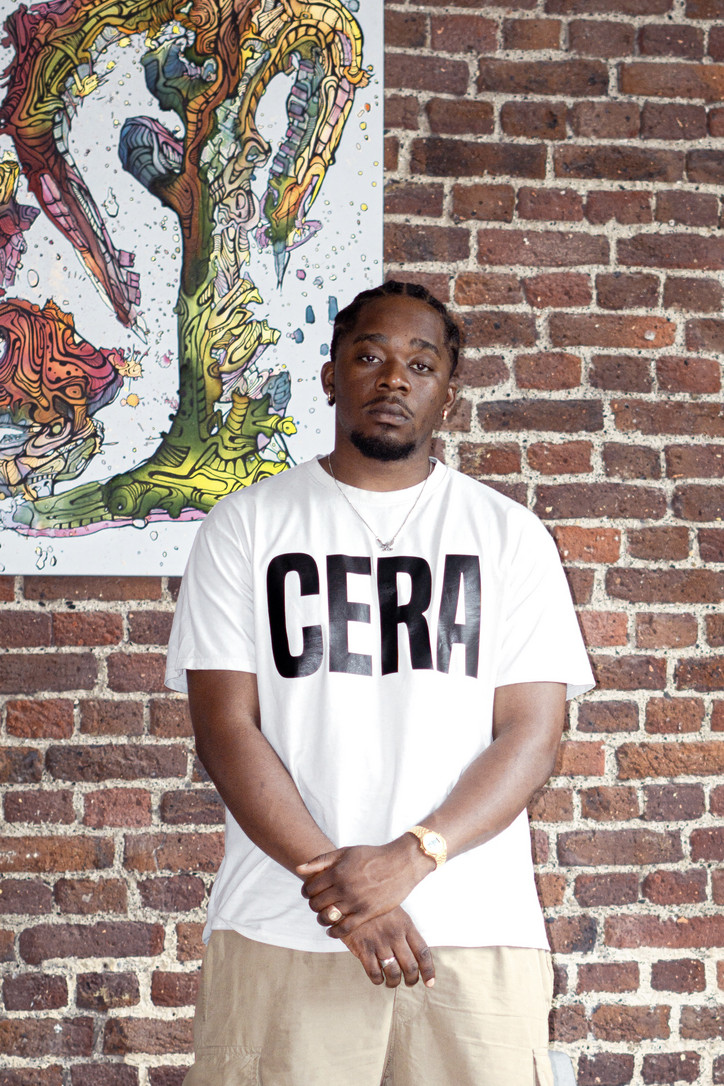
Photography courtesy of Sélim Laviolette
A movement born from the underground, Corrupted Era is more than just a streetwear brand. Frustrated by how restrictive social norms inevitably bleed into fashion, founder Philippe Kaninda started designing pieces for himself that better reflected how he wanted to be seen in the world. It wasn’t long before “others who didn’t quite fit the mold” started noticing. Now, as a full-fledged designer, Kaninda’s mission is simple: disrupt the status quo and create collections that “let everyone express themselves however they want.” With exciting new releases on the horizon and a series of immersive events that go beyond your typical fashion show, Kaninda’s motivation remains unchanged. “It’s amazing to see people rock our pieces and make them a part of their identity. That’s what makes it all worth it," he tells us.
What’s inspiring you right now?
Right now, I’m inspired by New York movies, especially by Spike Lee. The settings and their vibrant little details give me a lot of ideas.
Where might we find you on a Sunday afternoon?
On a Sunday afternoon, you might find me mixing house or hip-hop at home or watching an anime (probably One Piece)
Do you have any rituals?
Not really, I like changing my environment because it helps me think more clearly and come up with better ideas.
What is your favorite place in Paris to be alone?
I don’t really have a favorite spot in Paris yet — I haven’t unlocked that feature... But I do like hanging around the 3rd arrondissement. There are a lot of chill spots there.
What was the last dream you had?
My last dream? I was the leader of a cartel in the favelas of Rio. It was a really strange dream, but honestly, pretty awesome.
If you could interact with one person from the past, who would it be?
If I could meet someone from the past, it would be a visionary like Virgil Abloh. I’d love to understand his creative process and what inspired his groundbreaking work.
Who have you been most proud to see wear a piece from your brand?
I was most proud to see Jules Koundé wearing a piece from my brand. He is an icon of fashion and actually went out of his way to buy it from my site himself. That meant a lot.
What is one of your favorite patterns at the moment?
The Nigo sweater (tapestry) because it's thanks to it that I am where I am. This sweater has given the brand great visibility.